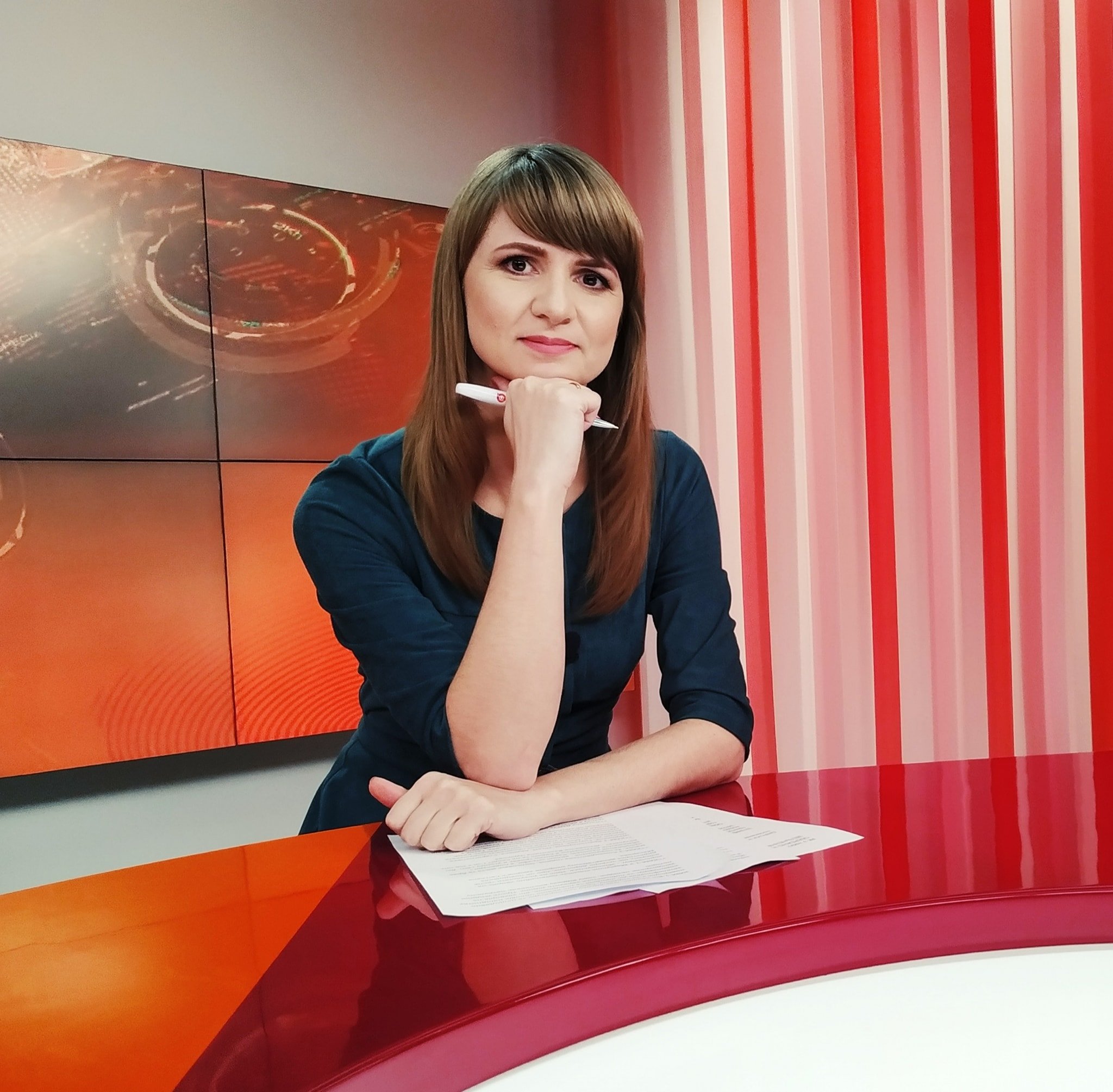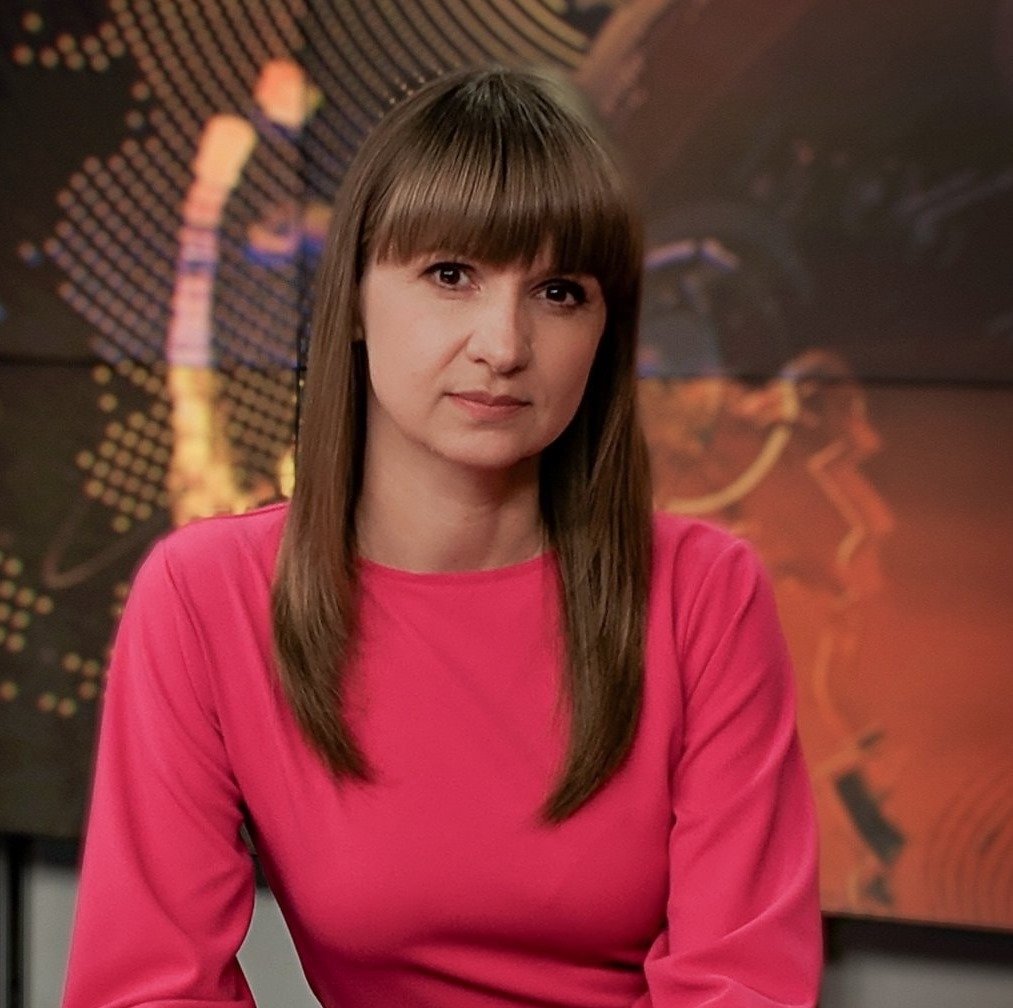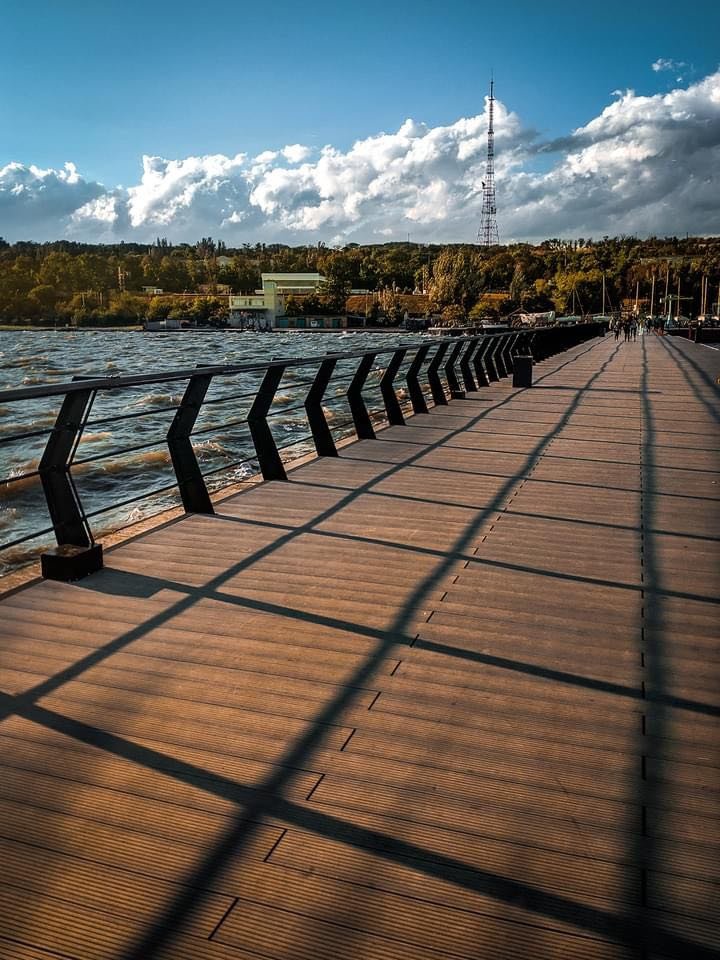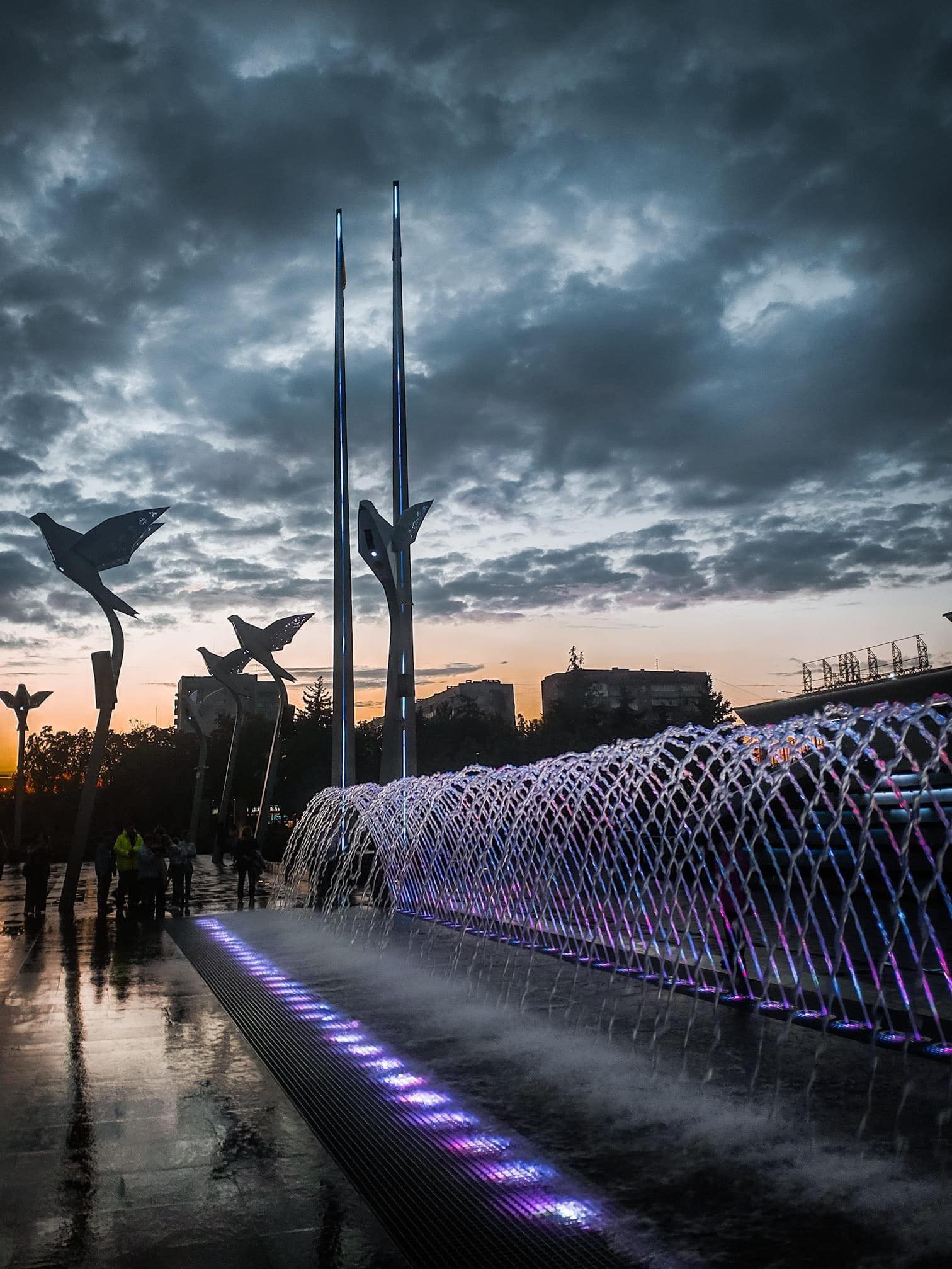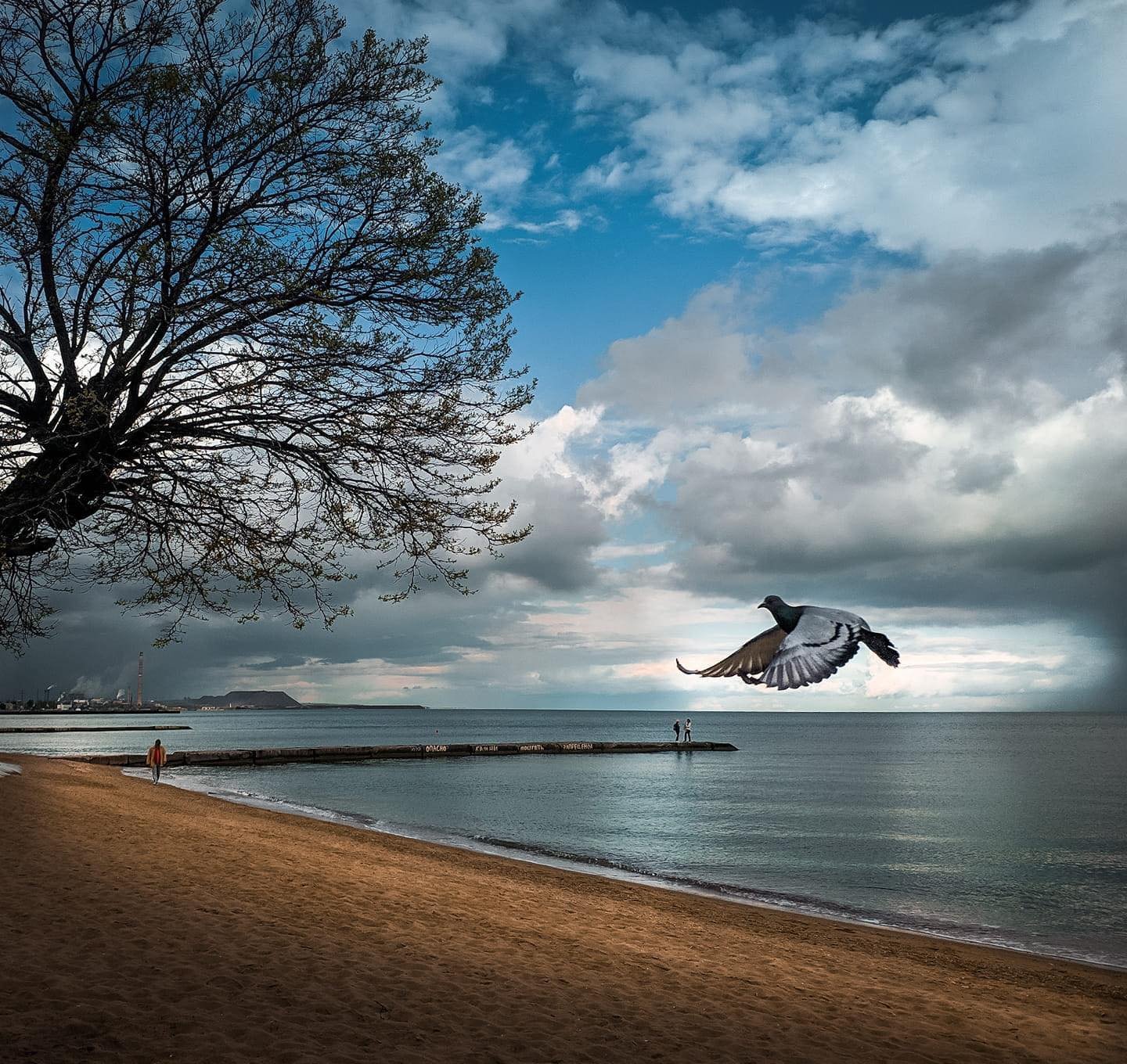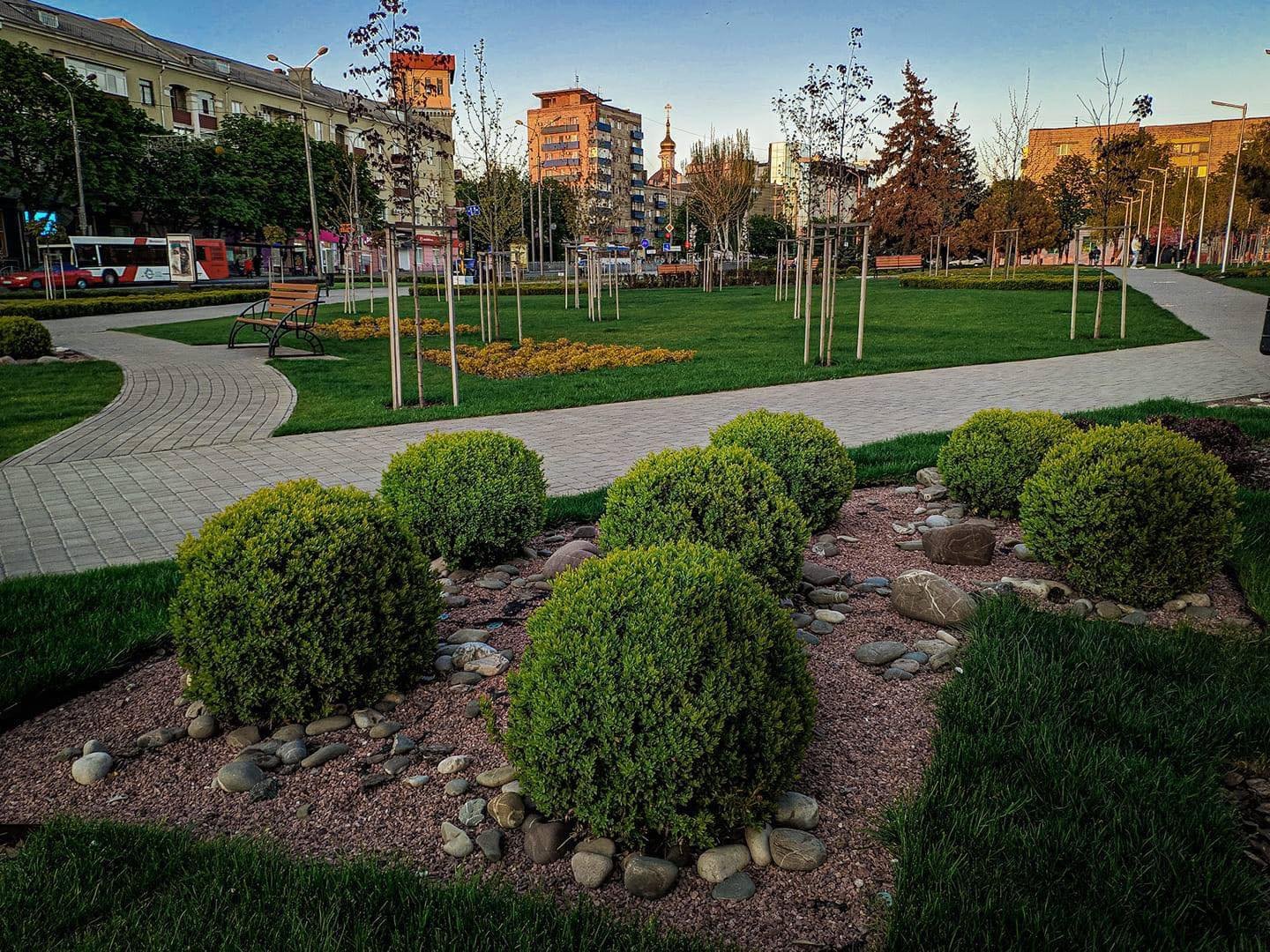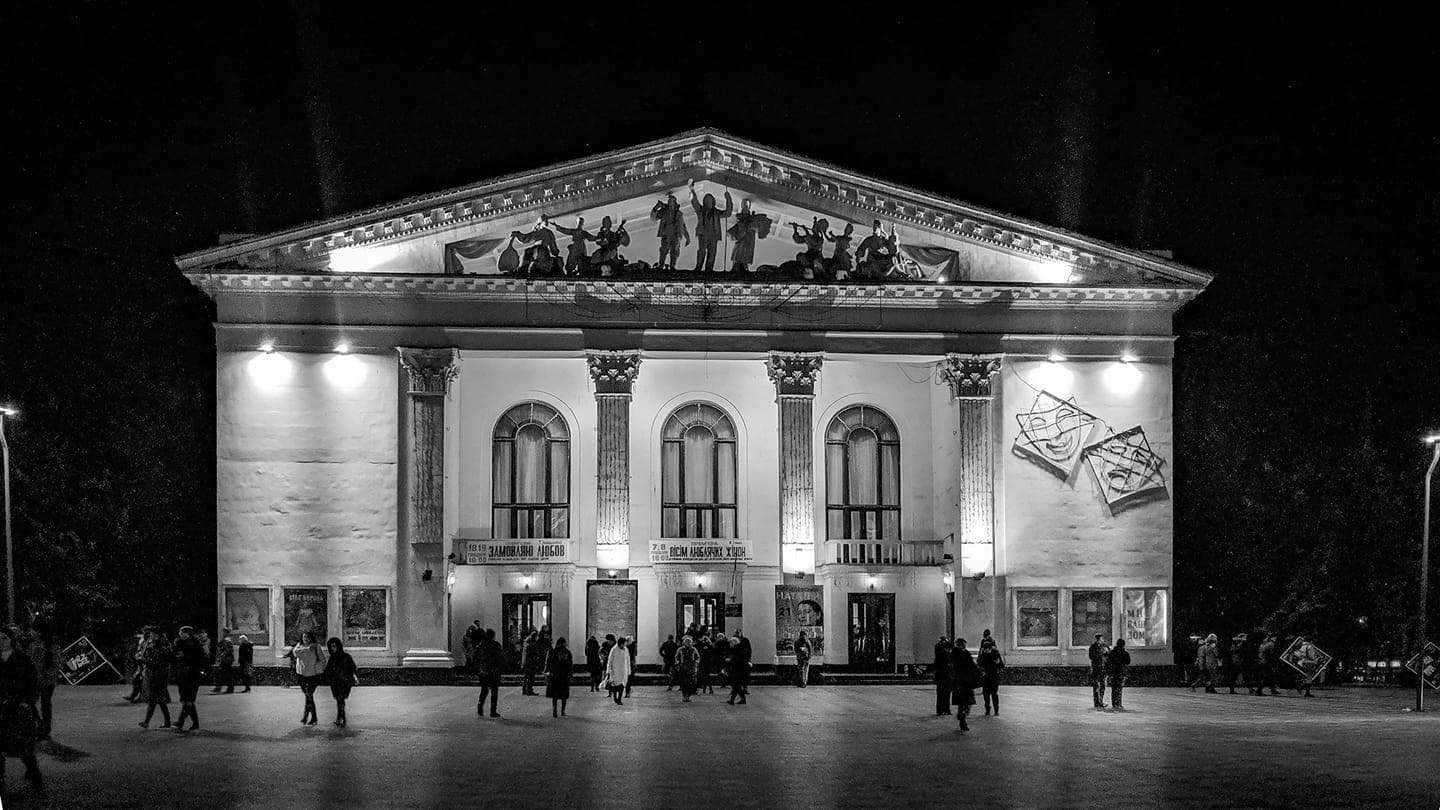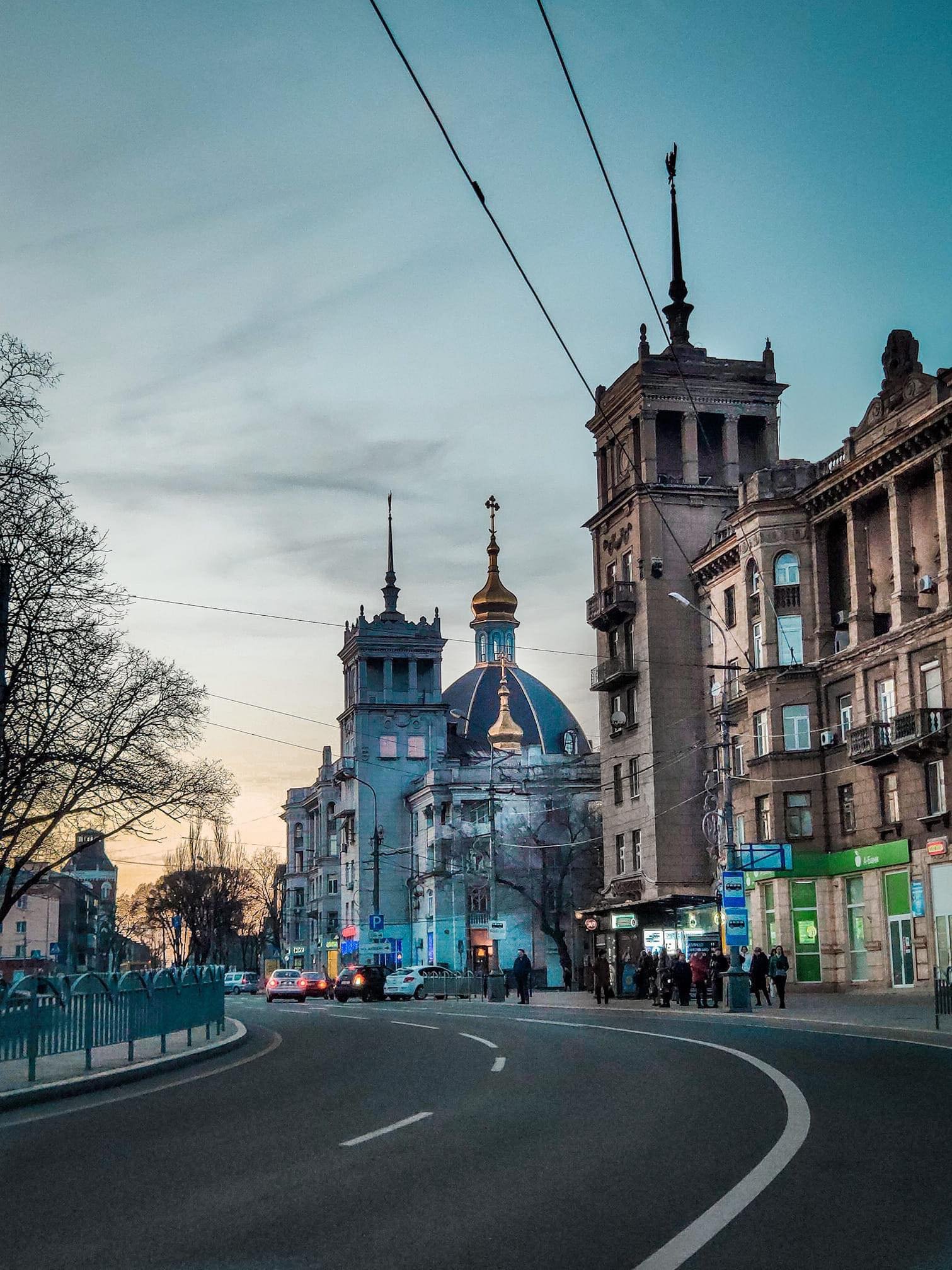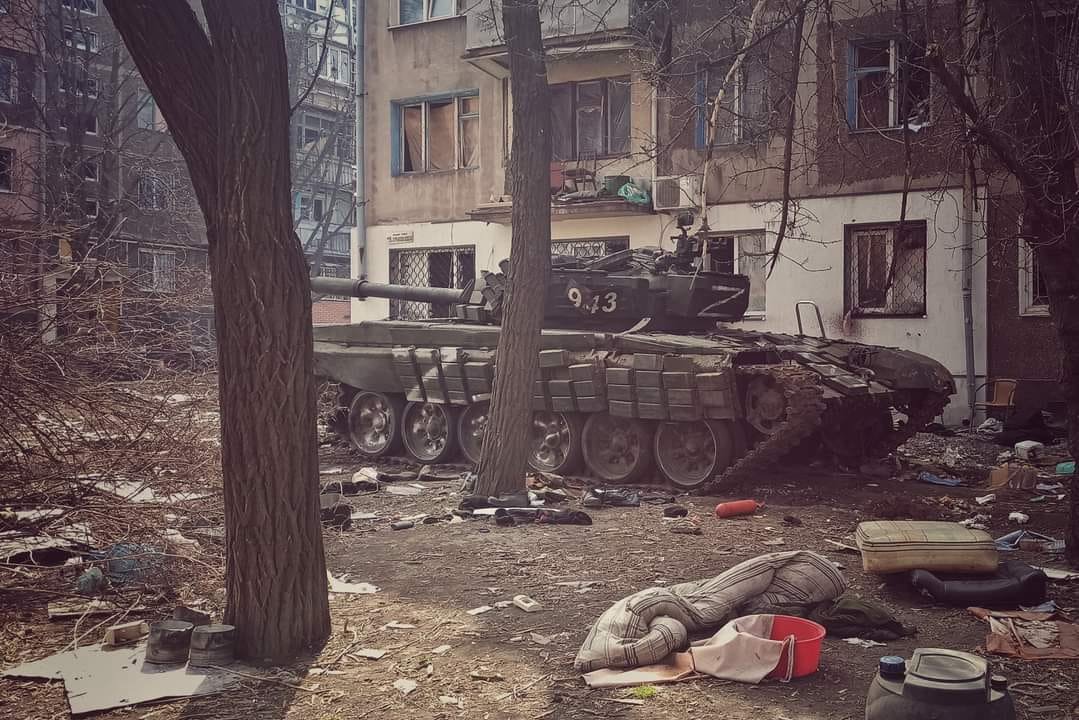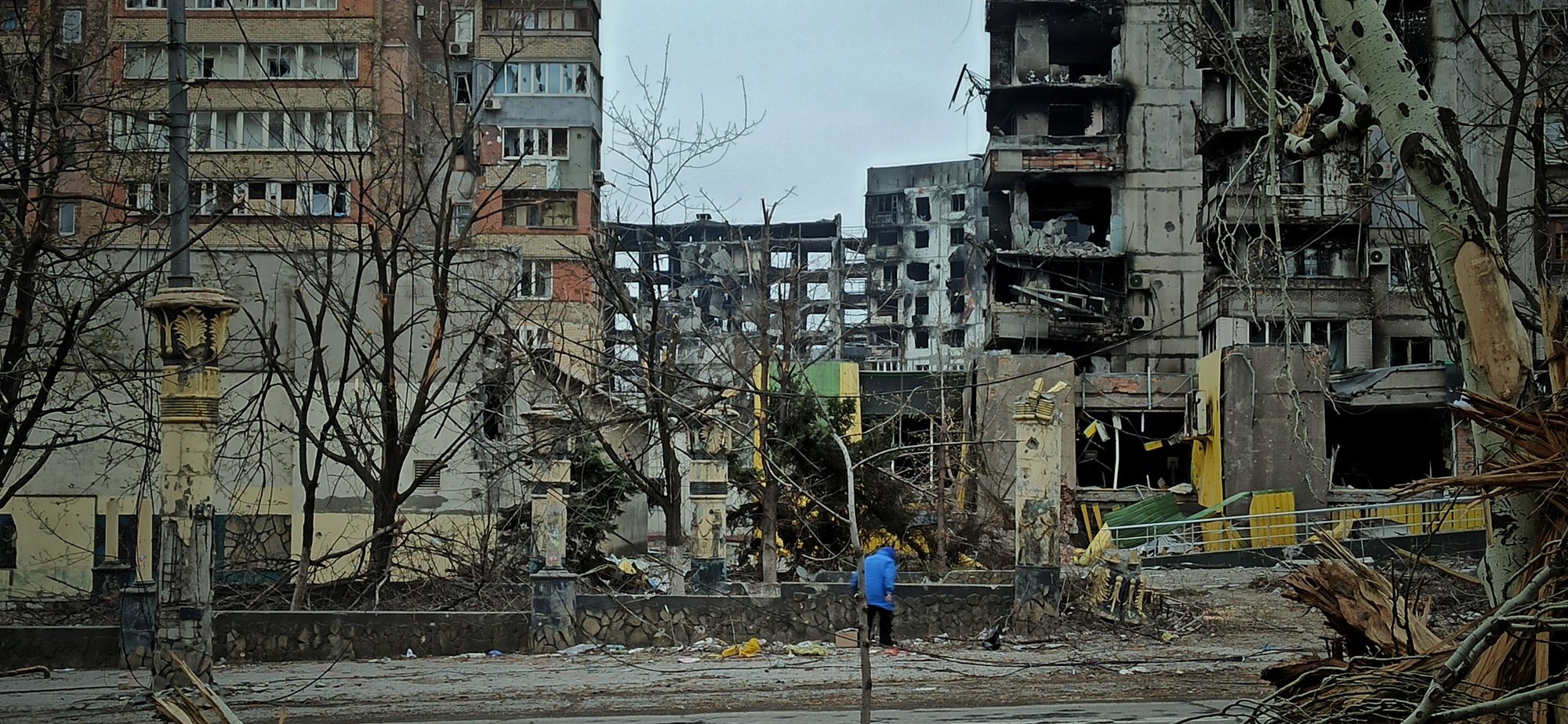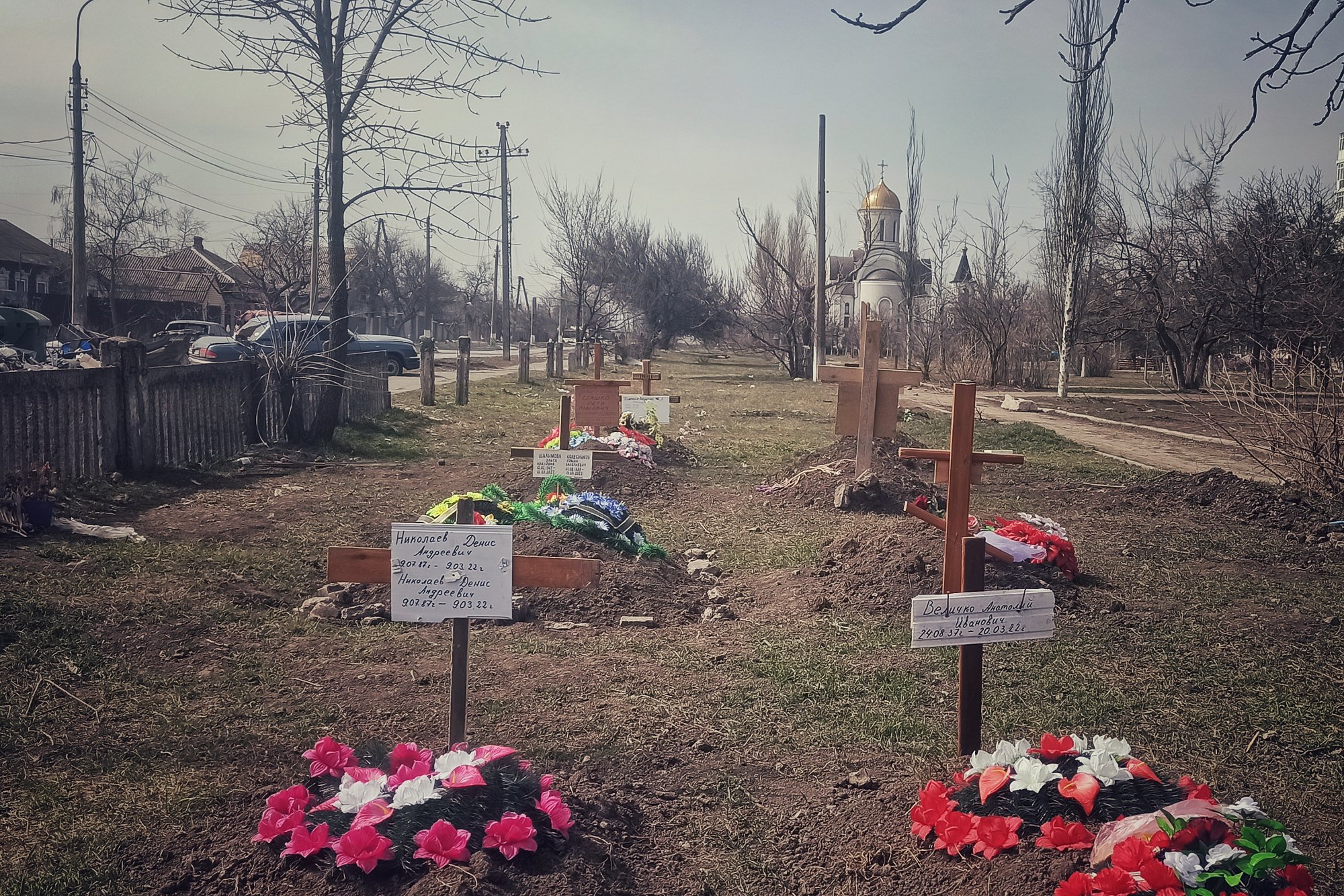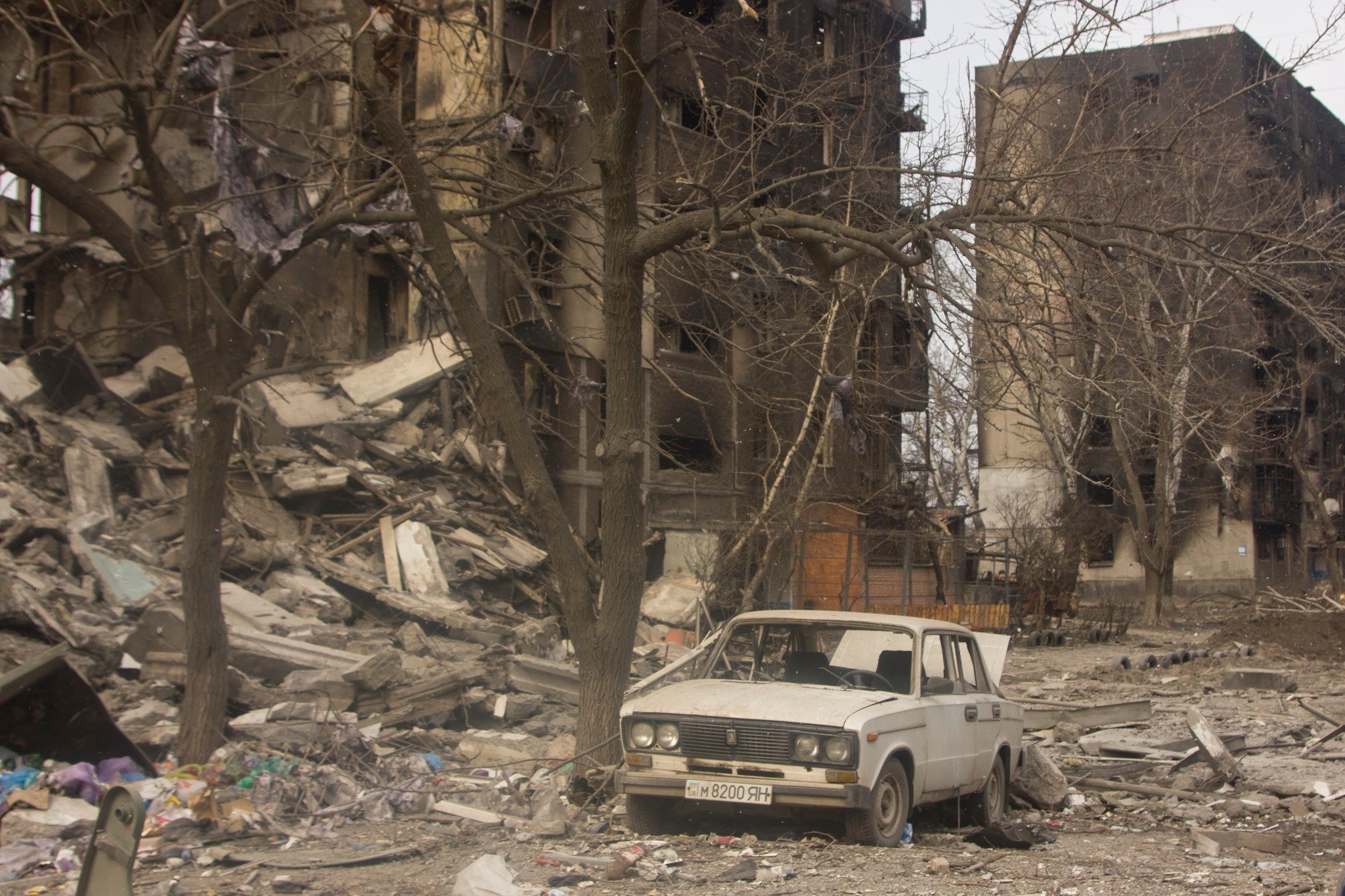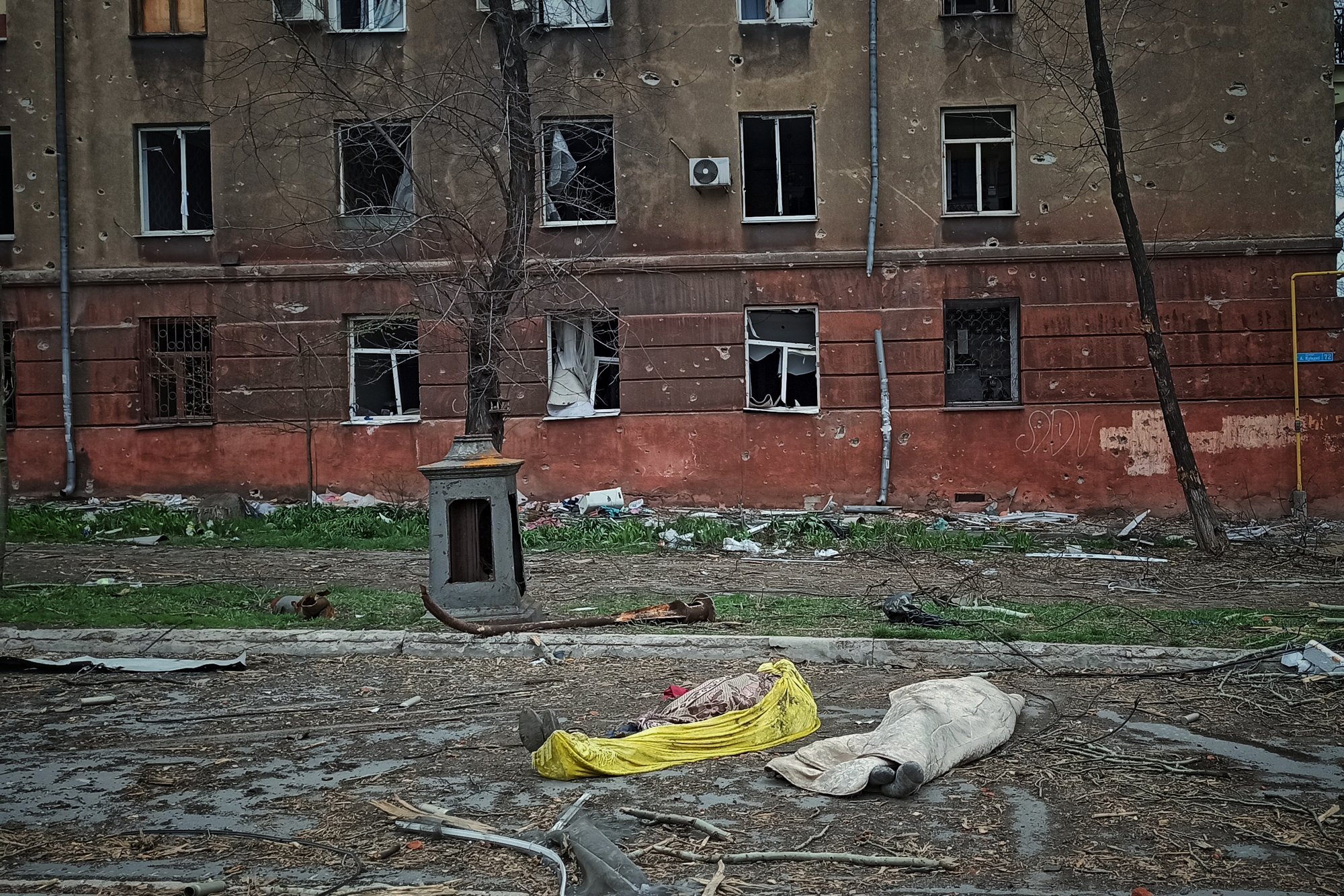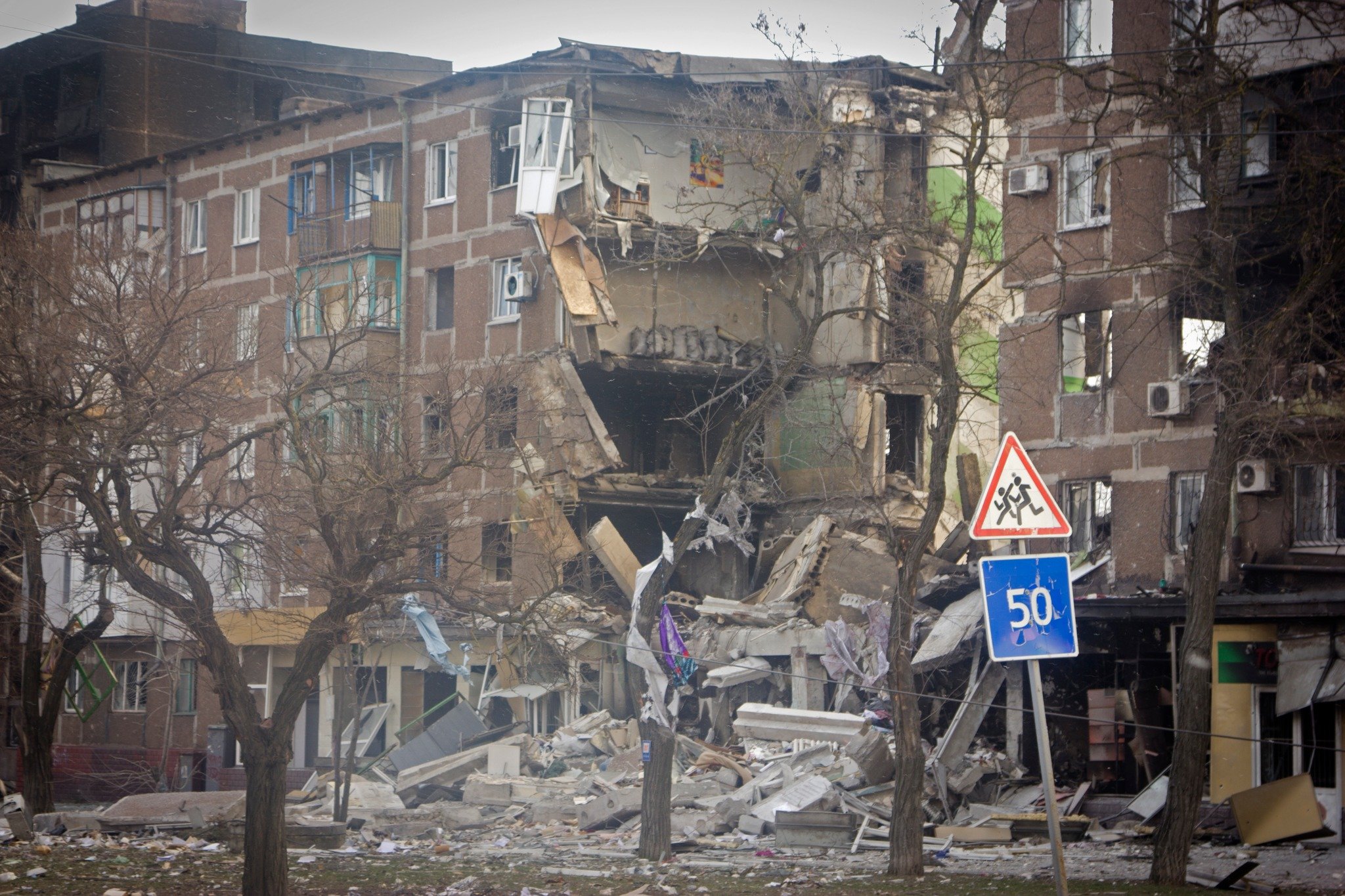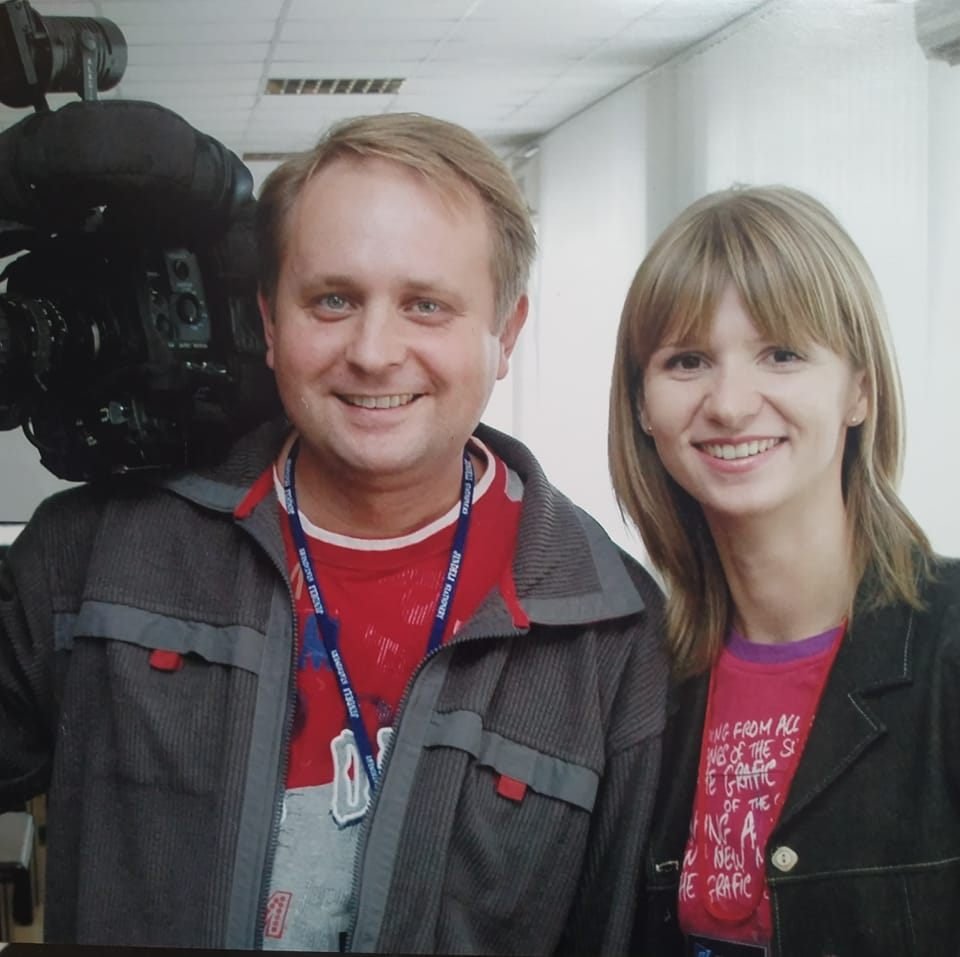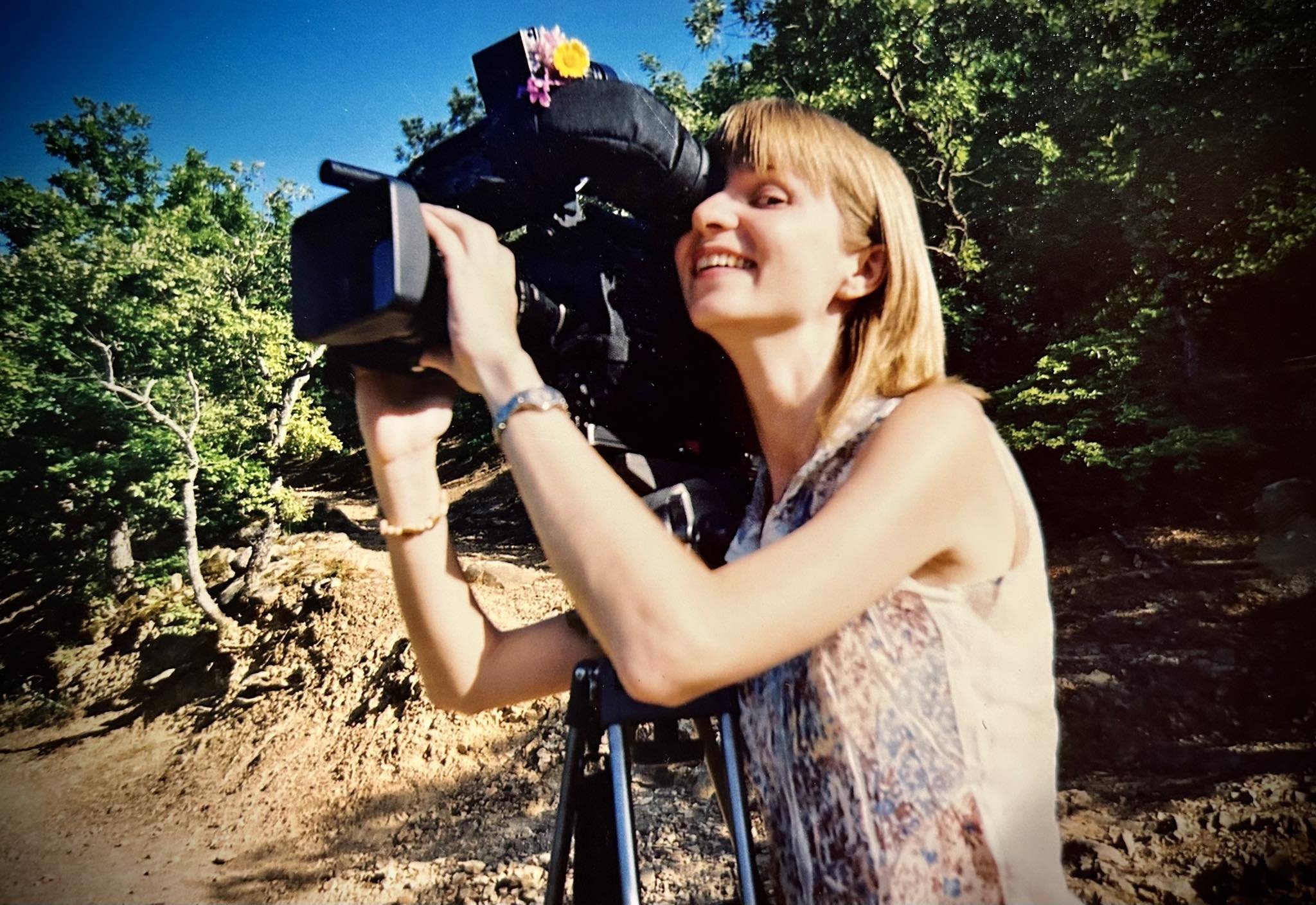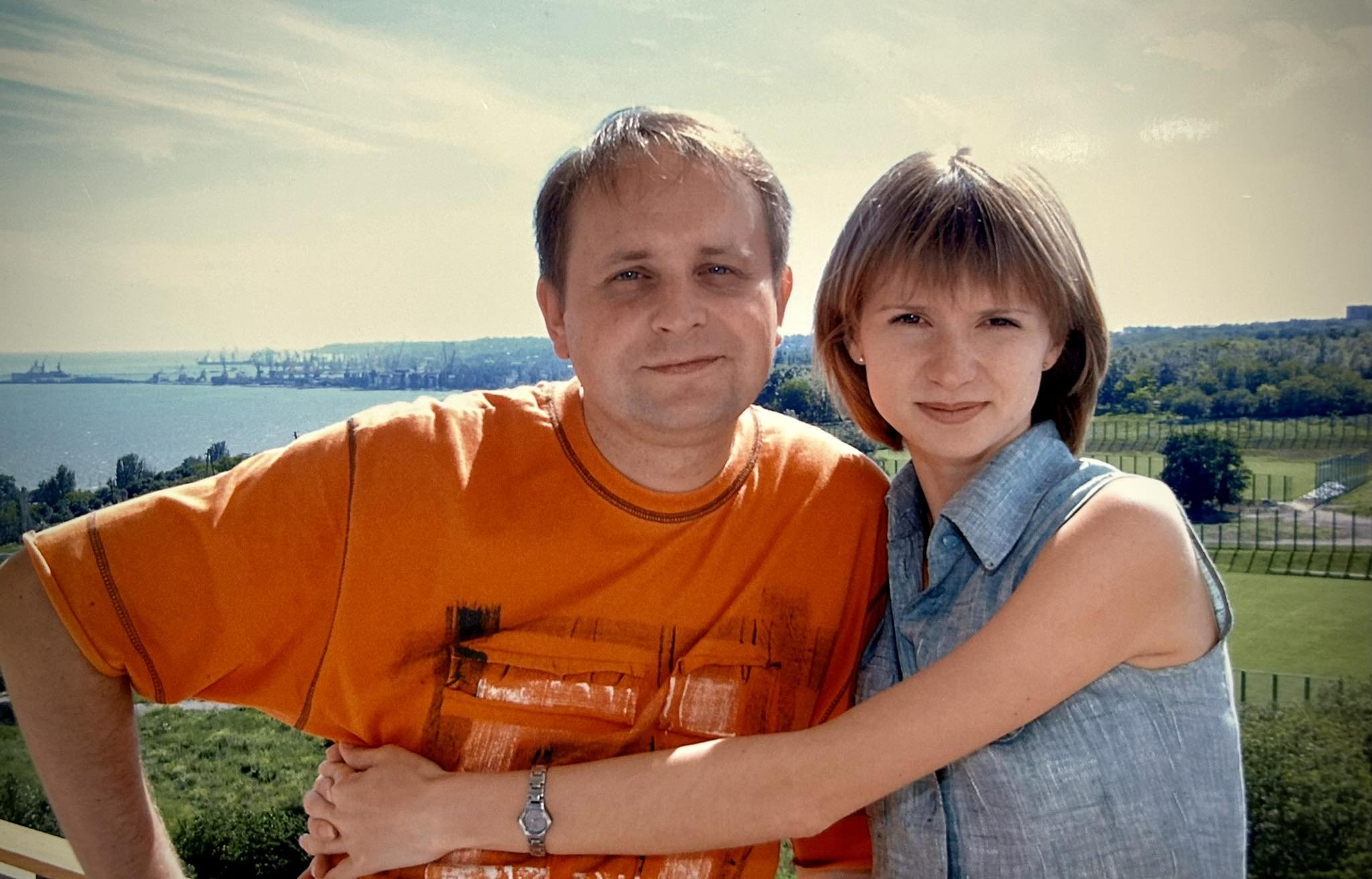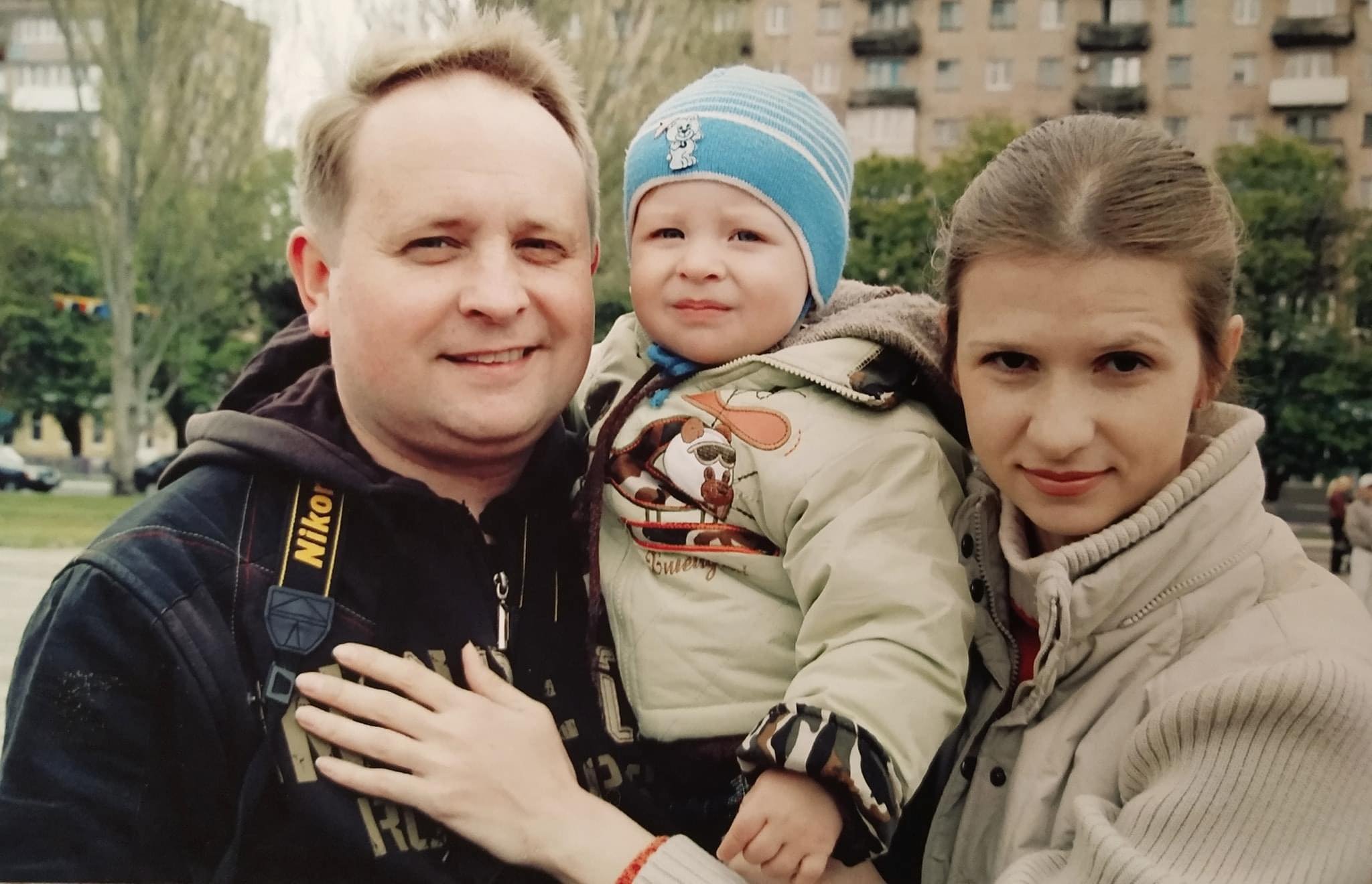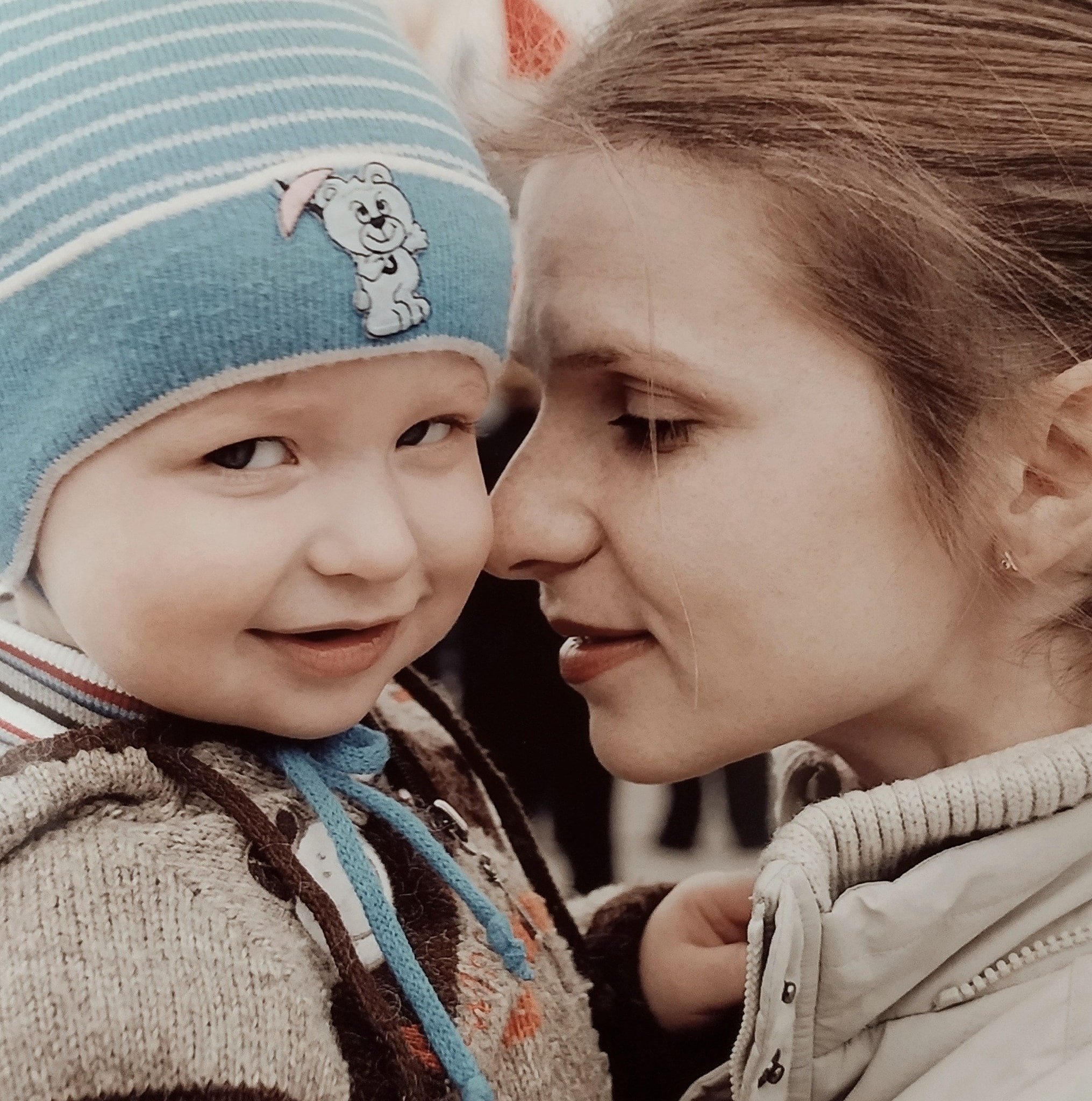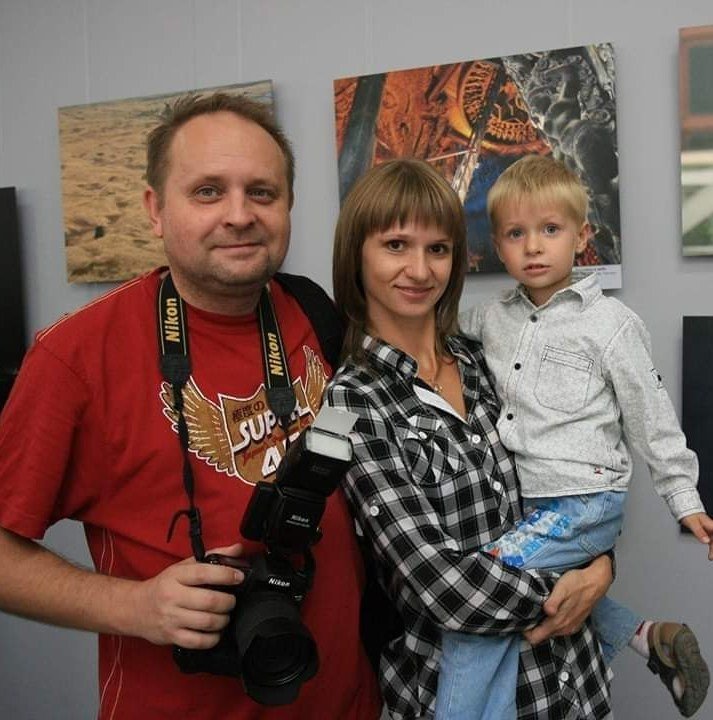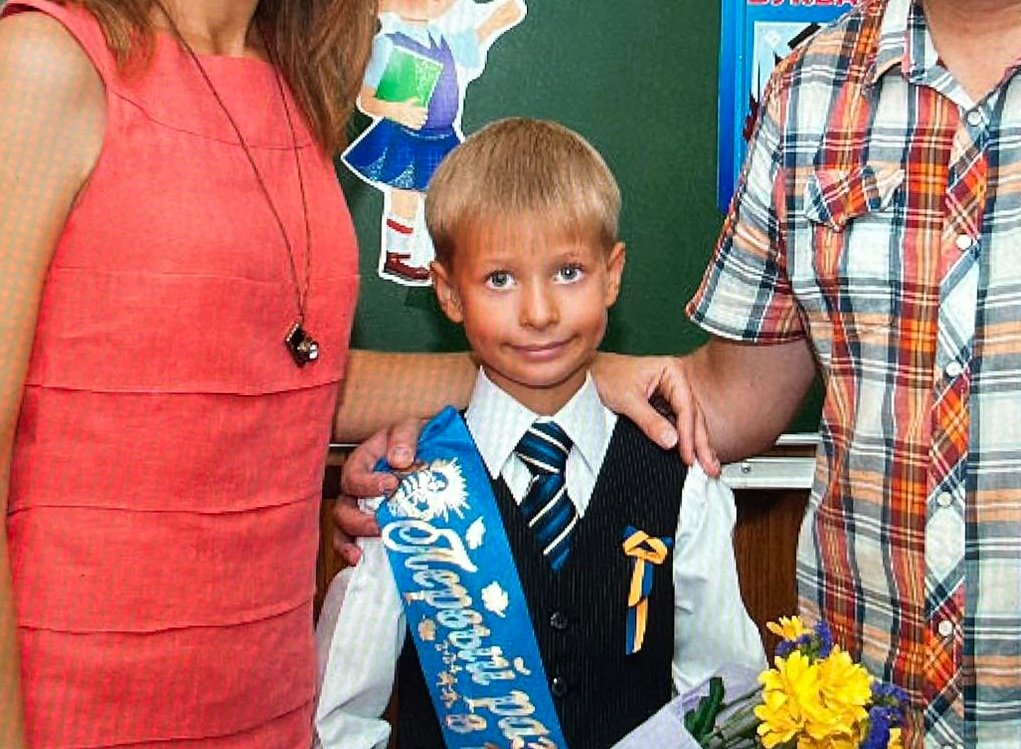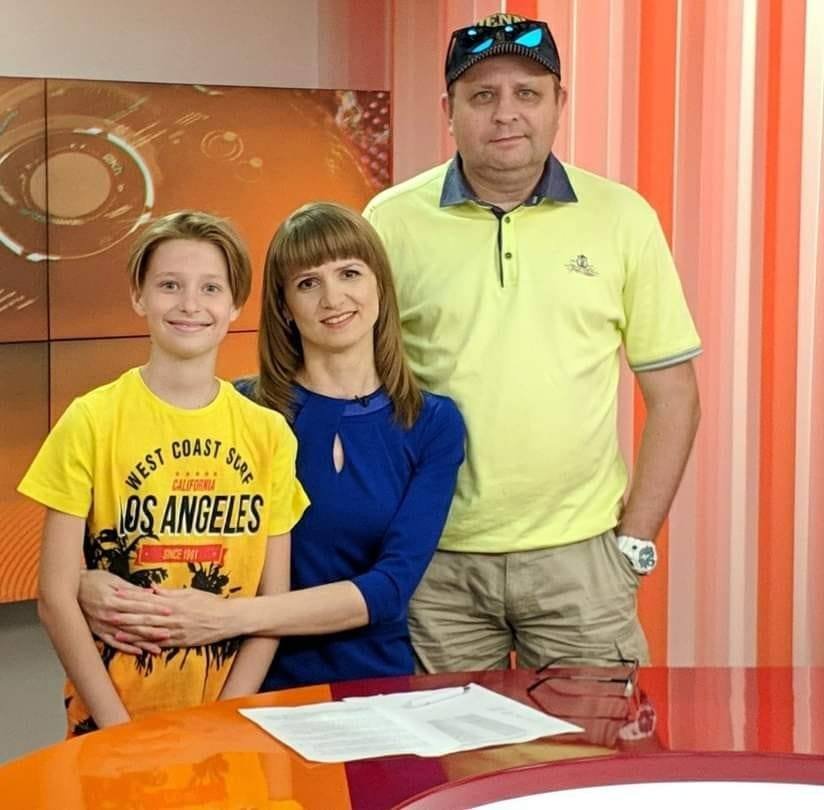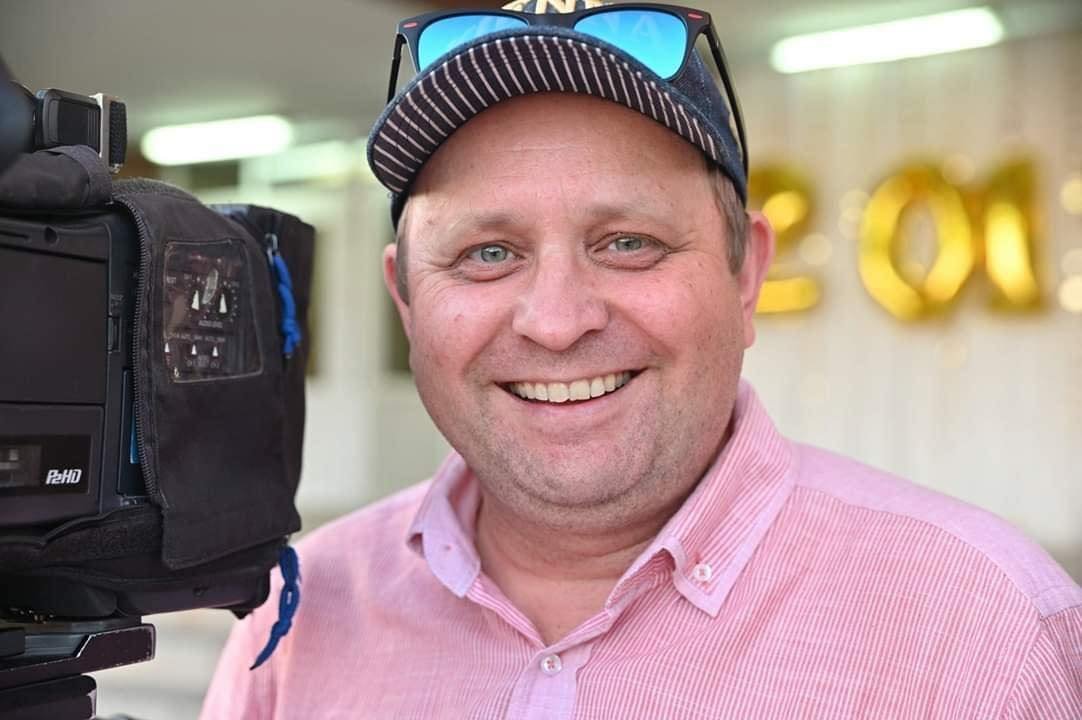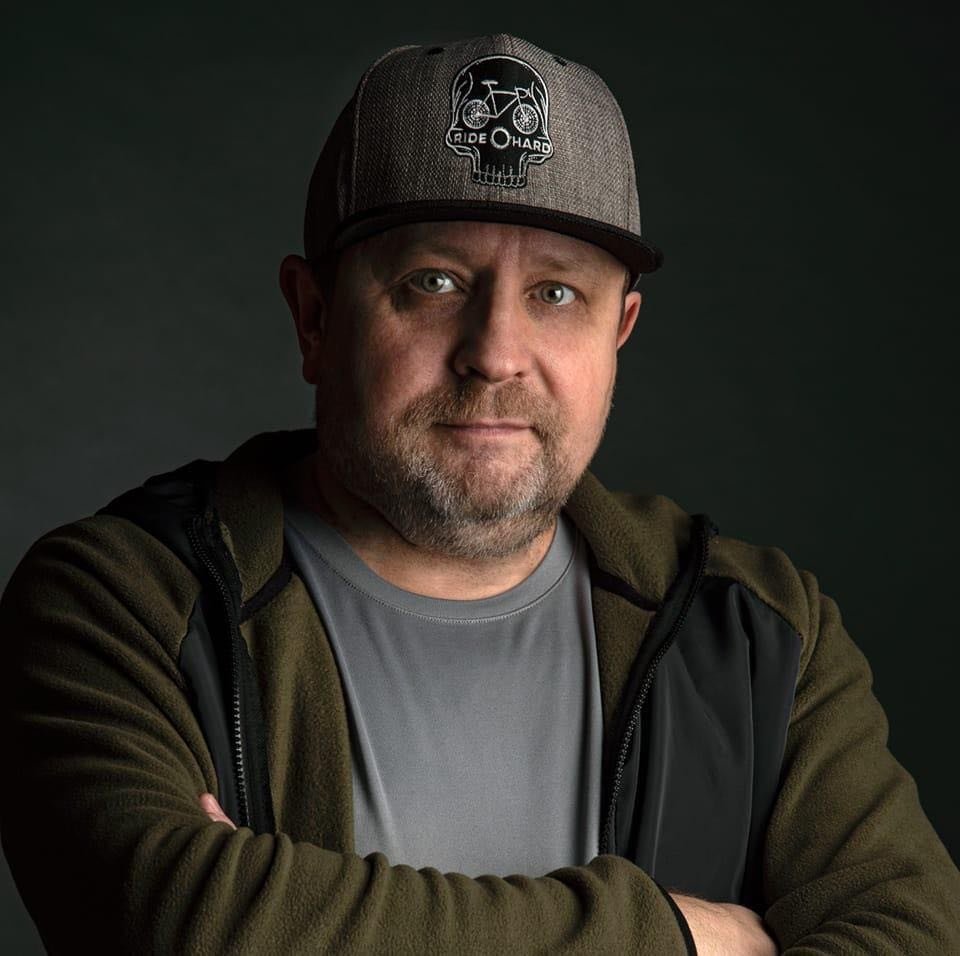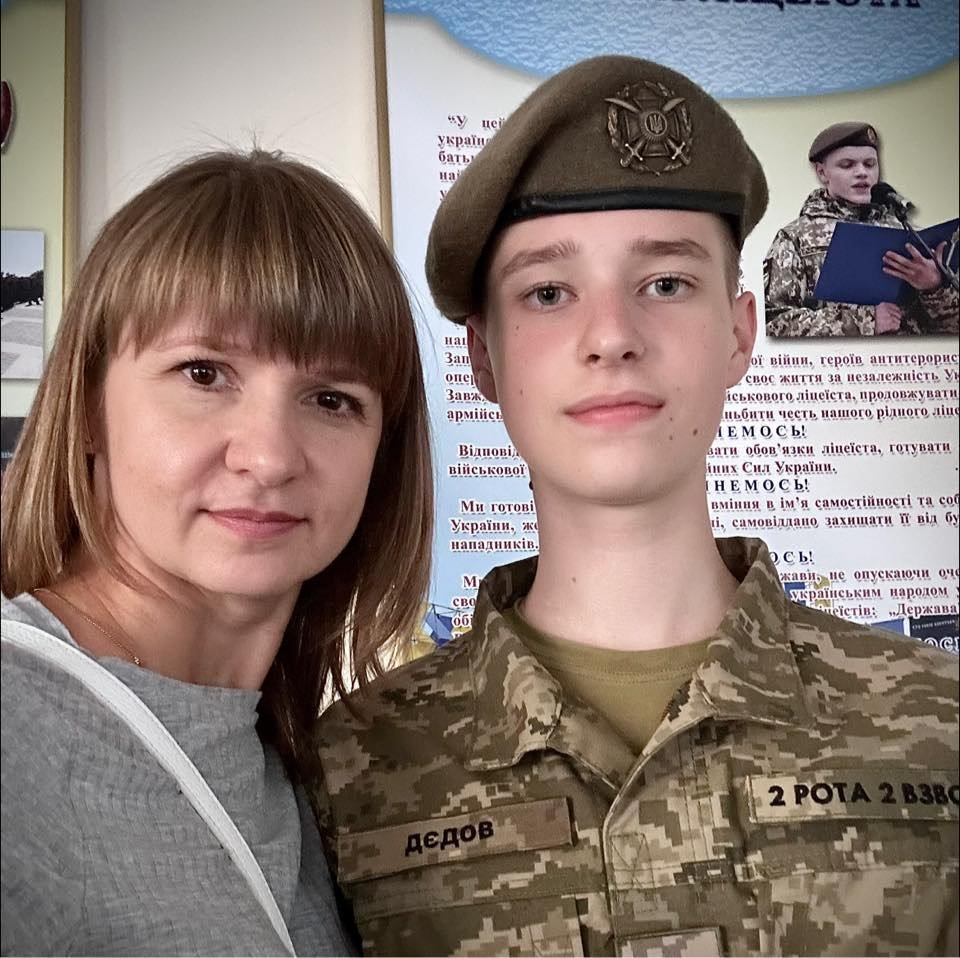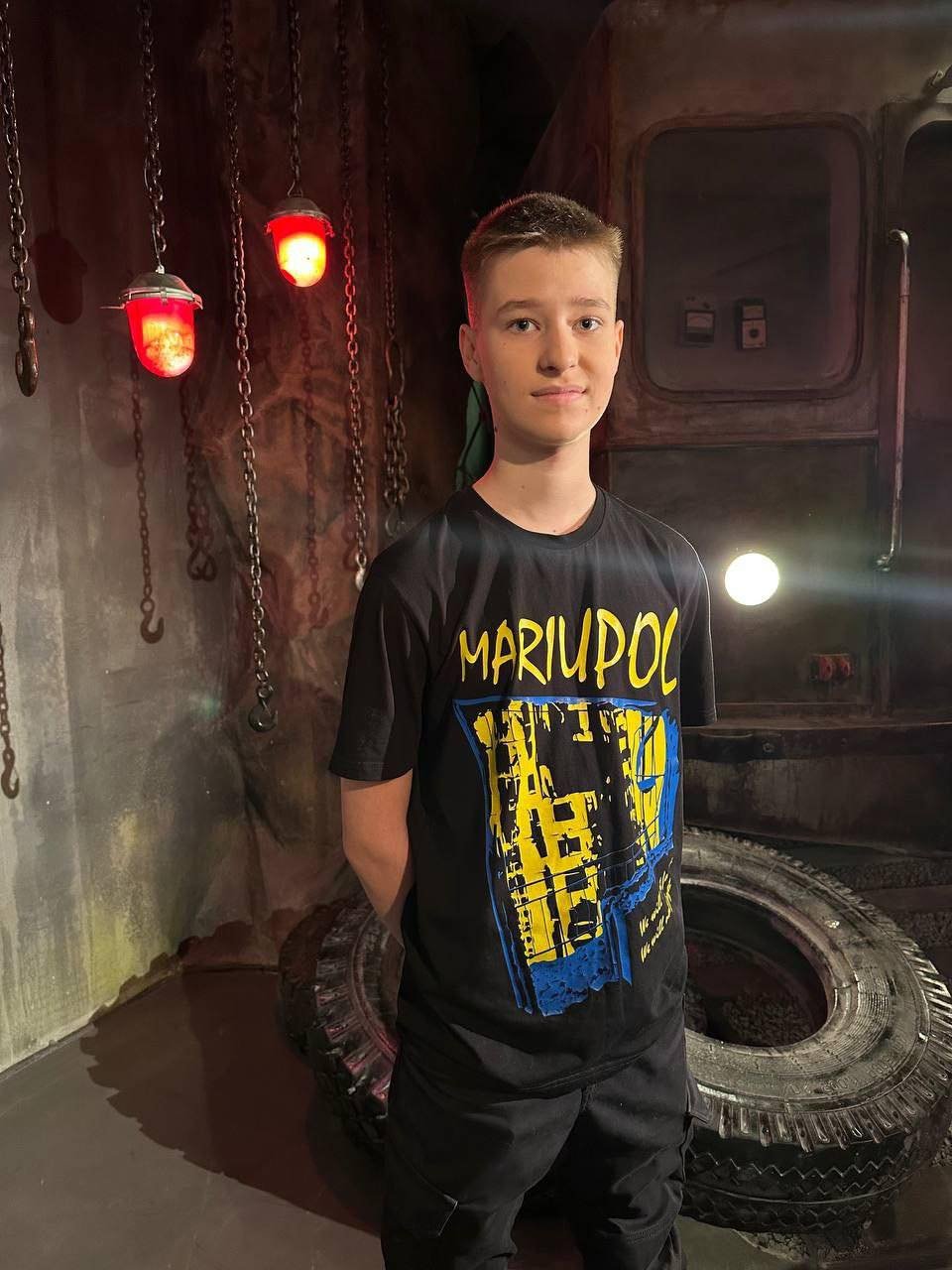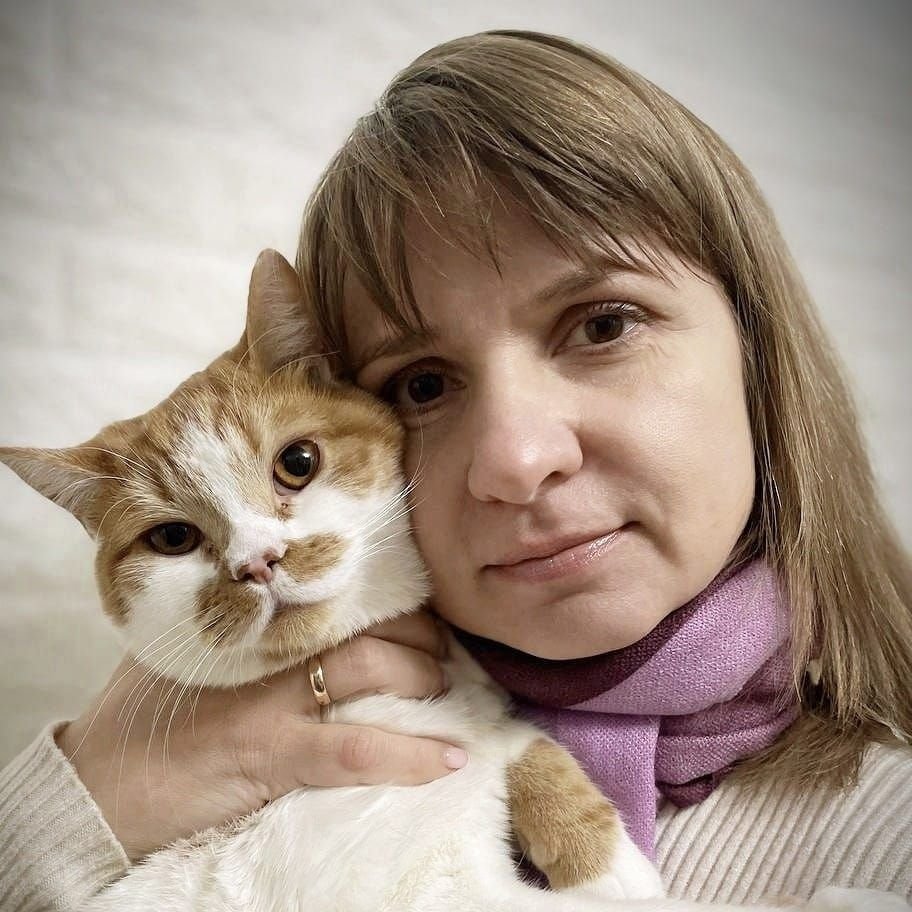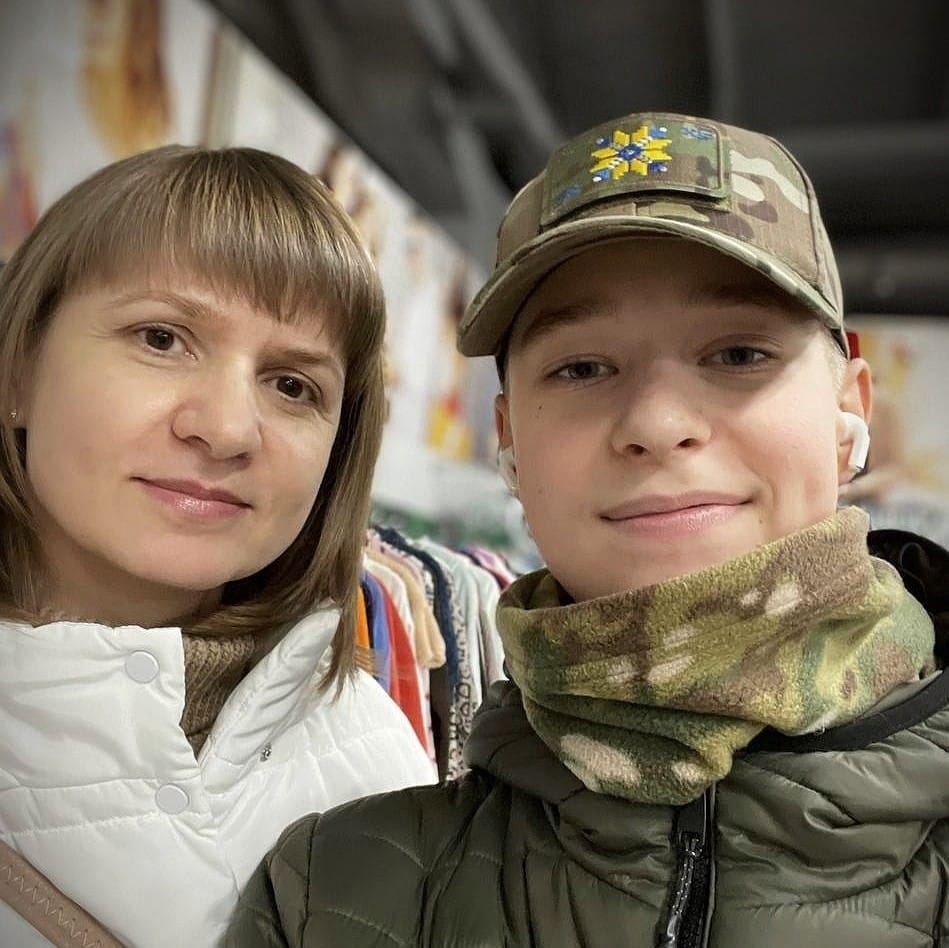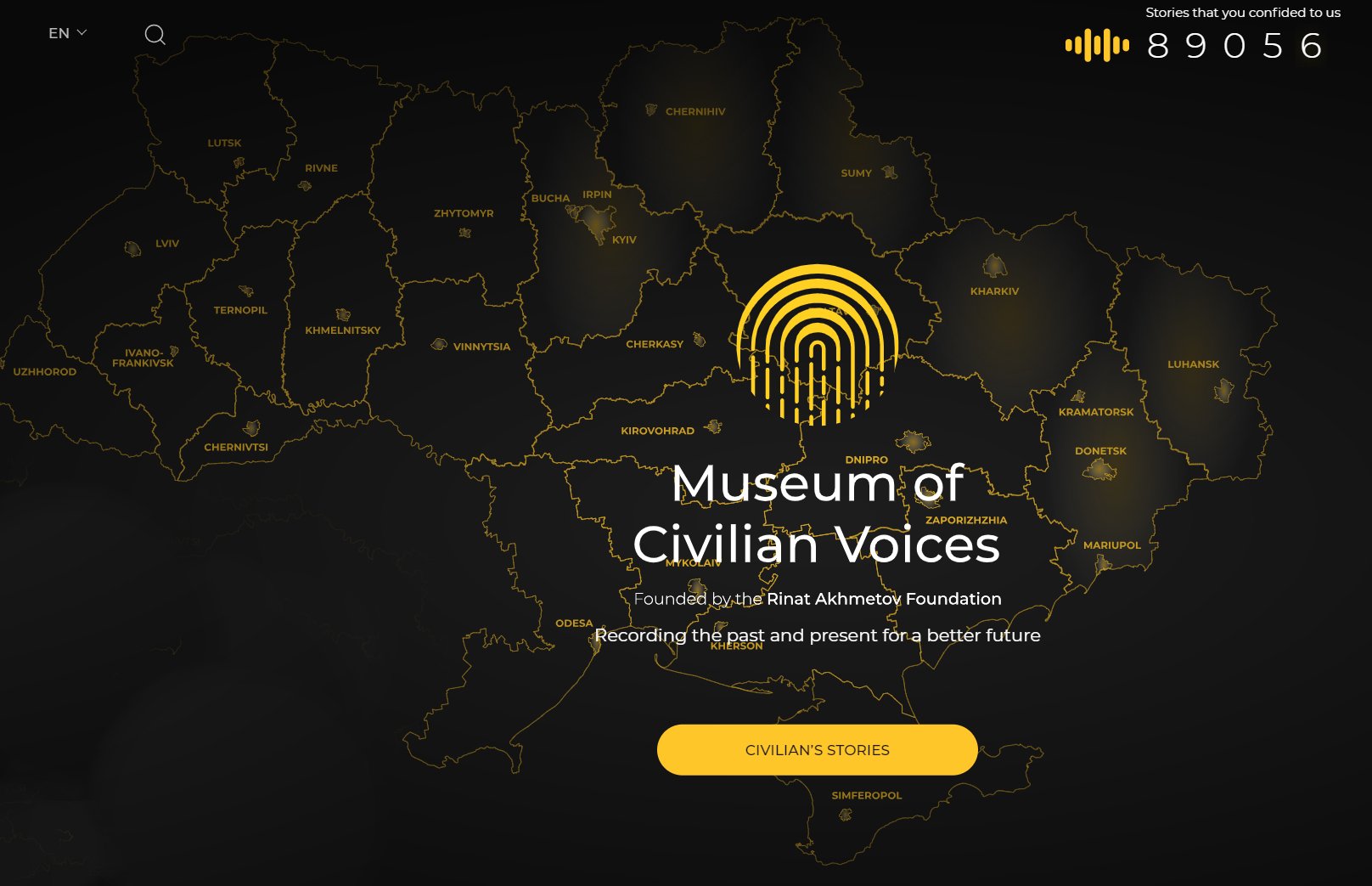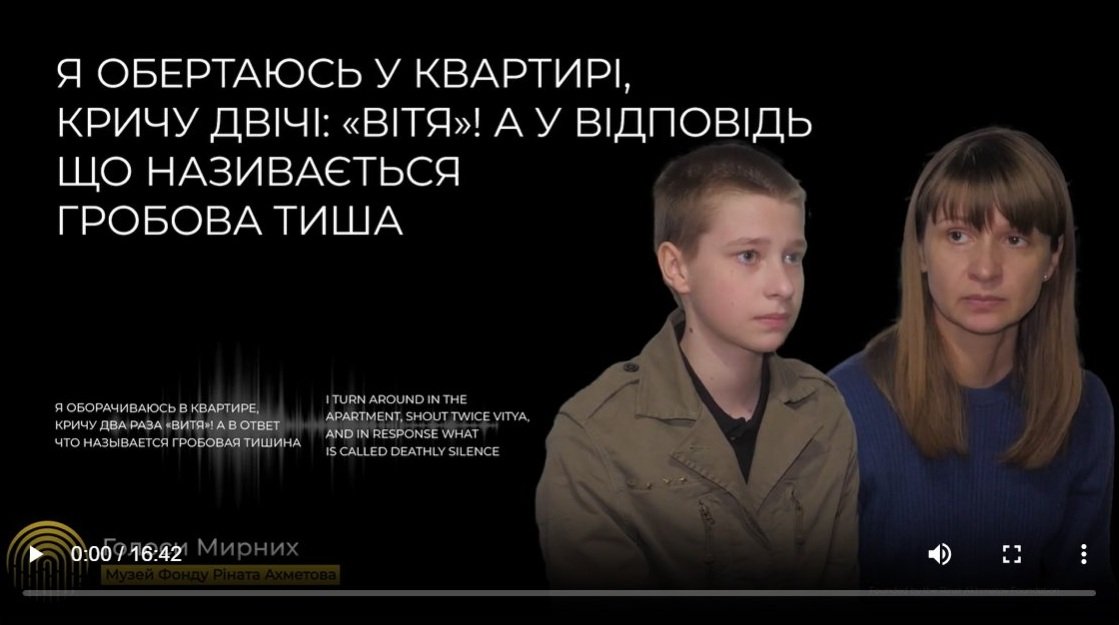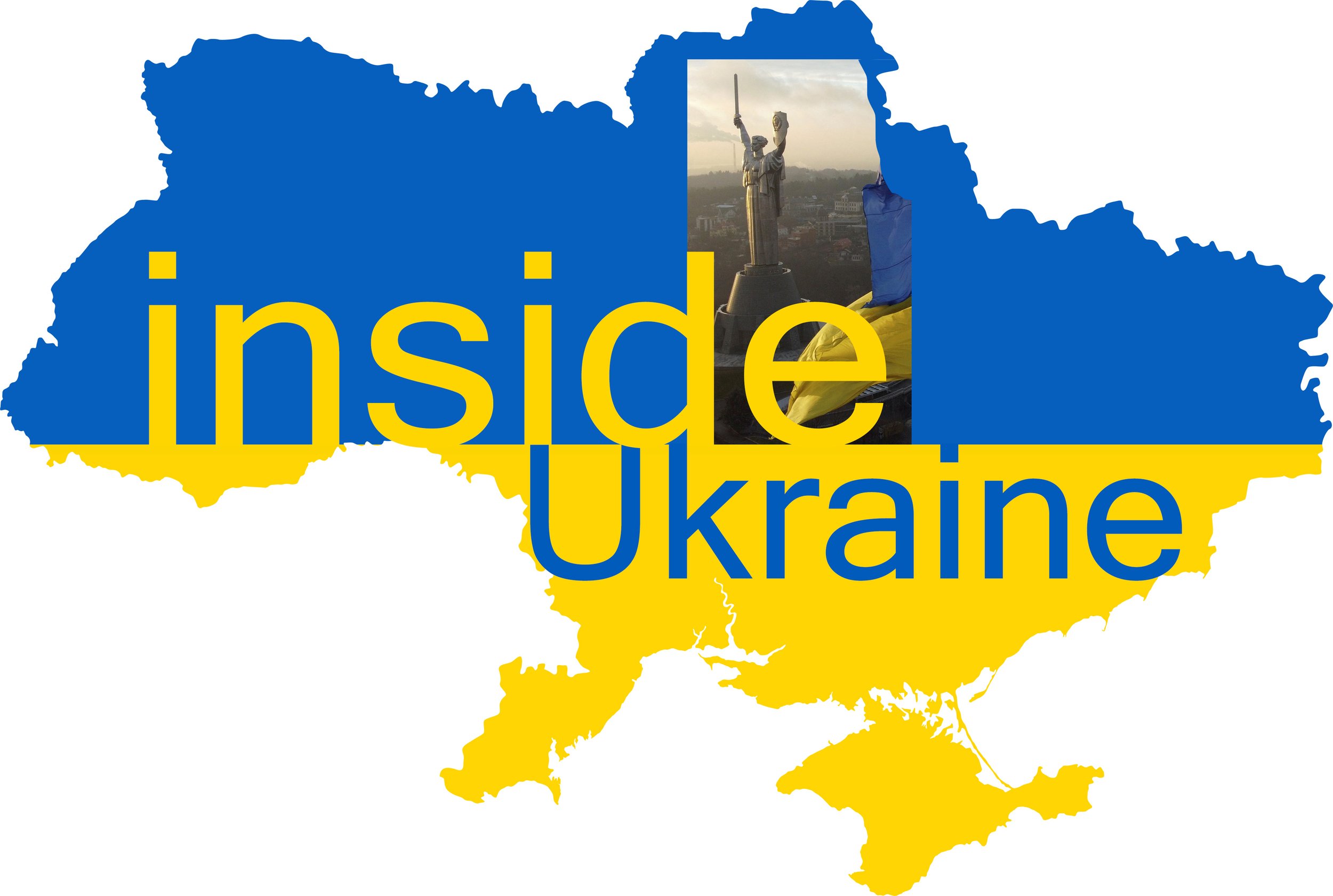THIS INSIDE UKRAINE STORY IS FROM KYIV.
* All images and answers in the feature were provided by the WOW Woman, unless otherwise specified.
INSIDE UKRAINE SERIES: A SNAPSHOT, A DAY-IN-THE-LIFE, A GLIMPSE OF WHAT IT’S LIKE TO LIVE, RESIST, SURVIVE AND PERSEVERE IN A NATION UNDER ATTACK. GLORY TO THE UKRAINIAN WOW WOMEN, FOR SUPPORTING THEIR COUNTRY AND BRINGING UKRAINE CLOSER TO VICTORY.
“Ms. Natalya Dedova is a collector of people’s stories. Ms. Dedova is from Mariupol, a city on the Sea of Azov, in Ukraine. Natalya was born in Mariupol, studied there, worked as a local newscaster and a journalist there. Mariupol is where Natalya met her husband Victor (or Vitya); sparks flew - she in front of the camera, he behind. Natalya lived and breathed Mariupol and its people. Residents loved and respected her, especially her decade-long volunteer work with the Mariupol charity she founded, Marathon of Kindness, where she fundraised for the medical treatment of gravely ill children.
Then, in the early hours of February 24, 2022, russians invaded Ukraine. Natalya bore witness to the start of the barbaric russian blockade and over the period of weeks witnessed deaths of countless residents. She saw first-hand the horrors russians were bringing with them in the name of liberation. She witnessed as the city of Mariupol was leveled by the invaders, completely and utterly. She suffered personal loss at the hands of the invaders. Ultimately, Natalya and her son were among the 270,000 residents who ran; her husband Vitya didn’t make it out alive.
Although Ms. Dedova lives in Kyiv now, her journalistic sense keeps her mind on Mariupol. The aim of her work is to tell stories of the 270,000 Mariupol survivors who managed to flee from russian bombs, and of the 100,000 who couldn’t; Natalya shares her personal story as part of the former group, her husband’s fate lies with the latter.
Natalya’s dedication comes with a high price of daily remembrances of horrors but she carries on with this gargantuan effort, having written over 150 obituaries as well as 600 stories of survival. With this morbid archive, Ms. Dedova is forcing the world to face each crime perpetrated by the russian federation on Ukrainian soil, russians themselves can’t pretend otherwise.
I believe that storytelling is a form of justice; Natalya is a custodian of tragic tales of survival as well as tens of thousands of accounts of perishment of the innocents. I hope and pray that her, and all our efforts to speak the truth, will have their desired effect on generations to come.”
-- Olga Shmaidenko, Founder of WOW Woman.
Journalist, TV Presenter, Mariupol Survivor, Kyiv, Ukraine
1. Your name.
Natalya Dedova.
2. Where were you born and where do you live now?
I was born in Mariupol, Ukraine’s Donetsk region. Since October 9th, 2022, I have been living in Kyiv with my son, mother and our cat.
3. What did you study and what is your profession?
I graduated from the Mariupol Humanities Institute in 2000. I majored in philology, graduating with honours. I studied to be a teacher of the russian language and literature as well as the Modern Greek language. Immediately after graduation in August 2000, I began working in television as a journalist, presenter, and a news editor.
4. What did your typical day look like before the war and how has your role changed since the invasion of Ukraine?
Typical day before the war involved working with colleagues at the Mariupol television station. My last job was at the local TV channel called Sigma, where I was the editor-in-chief of the news programme Dzerkalo (or Mirror). I was a news anchor for seven years.
I also enjoyed getting involved with local Mariupol community, specifically in volunteer activities. In 2018, I founded an online project called Marathon of Kindness. During this time, we raised more than 20 million Ukrainian hryvnias to help more than 100 sick people in Mariupol.
After the full-scale russian invasion of Ukraine, Mariupol’s Sigma TV channel had to be shut down (because with occupation, russians also brought their own propaganda). I am currently working in Kyiv, as an editor and a journalist at the Eastern Media Holding LLC.
5. Why and how did you start your project: naming, describing and honouring the memories of Mariupol residents who died from Russian bombs? What is your aim? What audience do you have in mind for this project?
After leaving Mariupol and arriving in Kyiv, I became a journalist for the Museum of Civilian Voices project. Since April 2022, I have recorded more than 600 video interviews of residents of heavily bombarded Ukrainian cities like Mariupol, Bucha, Kharkiv, Zaporizhzhia, Mykolaiv, Chernihiv, and others. People explain the horrors they experienced since February 24, ‘22 the day of invasion. Through hearing such stories and recording these terrible experience, I hope for the world to open its eyes to the true 'russian world'. I also want the world to stop this aggression and punish those responsible!
Additionally, since March 2023, I have been helping in an extensive search for information about the perished residents of Mariupol. The initiative is a Ukraine-wide Victims Memorial. The world needs to know the truth about every Ukrainian who lost his or her life by the hand of the russian aggressor.
6. What motivates you to continue working on each new description of a murdered woman, man, child, Ukrainian person? How do you collect your thoughts, pick up the pieces and start all over again each time?
First of all, the memories of the dead motivate me, the memory of every child and every adult who was killed; in total, Russians killed at least 100,000 people in Mariupol.
I am motivated by the desire to tell and show humanity what true "russian world" brings with it. I want people to wince at these stories - russians killing entire families, destroying apartment buildings filled with civilians, children dying because their parents did not come home one day or parents dying from grief after losing their child. When the shelling is so heavy even the wounded cannot get help. When it’s such a heavy bombardment that a split second, a total annihilation. Finally, I want the world to understand that this war is not just between russia and Ukraine.
Mariupol, Ukraine. Before the russian invasion.
Mariupol, Ukraine. after the russian invasion.
Photos of pre-war Mariupol were submitted by Natalya Dedova, taken by her late husband Victor Dedov. Images of Mariupol, post-invasion, by Olena Sugak.
When asked about her upcoming activities in this interview, Ms. Dedova said: “in March and April, more than 130,000 Mariupol residents were killed! About 30,000 alone remain unidentified! That is why we will continue to write these stories, so that the world knows the truth, so that everyone who wants to tell the story of survival in the Mariupol hell can be heard. In Mariupol and here now, there is one war, but two truths. I want people to hear mine”
7. What do you consider your strengths or superpowers?
My superpower is finding the fortitude to start my life over, at 44; to be able to do this after russians murdered my husband, after bearing witness to the deaths of tens of thousands of Mariupol residents, after the loss of my home, my city and, to some extent, certain life values.
8. What specific actions (big or small) have you taken and continue to take to help Ukraine and the Ukrainian people?
Firstly, on the information front - I am spreading the truth about the genocide committed against the people of Mariupol. Since April 2022, my son and I have given dozens of interviews to Ukrainian and foreign media, and appeared in several documentaries, including international ones.
I am involved in recording the stories of those who survived and are trying to stay strong.
Volunteer work: The Marathon of Kindness was my charity project which has now undergone a transformation. Now, almost all the money raised is used to support the Ukrainian military. For example, in October 2023, we raised money for a car for our reconnaissance men in the Kherson region. In the summer, I raised money for the guys who are engaged in car repairs on the front lines.
Civilian support: In the summer, we raised money for a young woman from Mariupol who is studying in the University of Kyiv. She is from a large family and was having difficulties covering her tuition and dormitory fees. Additionally, since September 2023, I have been taking care of a grandmother and her grandson, who both escaped from Mariupol. Together with other caring individuals, we raise money for their rent, food, and medical expenses.
9. How do you take care of yourself? Is it realistic to remain emotionally stable in times of war? What exactly helps you to remain yourself?
I fled Mariupol on March 16, 2022. Since then, I had to learn to live in a new reality - without a husband, a home and without dear friends. Since my arrival in Kyiv, I've gone through ten psychologists, one psychiatrist and even took antidepressants. I will be honest, at one point I didn't want to live at all, even for the sake of my son. However, about six months after I hit my lowest point, I realized that if I survived the first shelling of my apartment on March 11, 2022, I have to carry on living; I have to really live and not merely exist.
The war changed the consciousness of many people, if not all of them. Everyone has their own experience of survival and their own sources of healing.
A friend once asked me: "If Vitya (my husband) could, what would he write to you?" My answer: "He would write only one word: "Live!".
After the events in Mariupol, not a single survivor remained the same. Some lost a child, husband, wife or parents. Some lost friends. Some lost their pets. Many lost their property. Many lost their purpose for living. Some people lost their minds and became mentally ill. Some committed suicide. We left Mariupol, but the city remained within each of us. And it pains us every day.
10. Do you feel that the war has changed you? How exactly? Were you surprised about yourself, people and the world in general? Did you experience an epiphany?
After leaving Mariupol and realizing what had transpired there, I came to three conclusions:
There is no justice. Why did all those innocent people die?
There is such thing as fate. And it is impossible to change it.
And there is no God. If there were, putin would not have been born at all. And there would be no murders.
My shocking realizations about peope/humanity:
How could this happen in the 21st century?
Secondly, how, after what russians had done to Mariupol, can those who remained in the city exonerate the murderers, live with them side by side and continue working for them?
11. At what point did you realise that the war had come to Mariupol? What happened, where were you and how did you survive the bombing and shelling?
The war came to Mariupol back in 2014 (when russians annexed Crimea) and it has been going on ever since. My description of the start of the full-scale invasion of Mariupol (on February 24, 2022) and my family’s experiences from those horrific days have been captured in this interview. Here are several excerpts:
"No one expected the kind of nightmare that would begin shortly. It seemed, at first, like in two or three days this will all be over. We all thought that the situation would be resolved through some kind of negotiations. The morning of February 25th, we walked to work, having misplaced our car keys somewhere. The first thing we saw were long queues at the ATMs, the transport was running as usual, and Ukrainian flags were flying in the city.”
“Left image: Last days of February 2022, the view from Natalya’s window. Right image: Hope for peaceful resolution of conflict was still alive in the Dedov household. The family is huddled inside a cold apartment, since heat has been cut off. From the left, Sasha Dedov, Victor Dedov and Natalya Dedova, with colleagues. ”
“February 25th, 2022, turned out to be my last work day at Sigma, the local news channel. The premonitions that the entire team would be meeting for the last time came true. After that, the struggle for our own survival and attempts to somehow fulfil our professional duties began.”
“Every day the war tightened the noose around the city. The water was shut off! So drinking water was getting delivered directly to people's yards from the city's water supply system, and the utility water had to be drained from radiators in the basement. People were managing still. Food was cooked on a fire in the yard. Fortunately, our family had a bit of food and drinking water supply.”
“On March 2nd, electricity, heating, water and communication went out, and on March 5th, gas was cut off. All that was left was faith in the negotiations for peace. Nobody believed that Mariupol would be destroyed, that people would be killed in Mariupol literally - every day, every minute, from then onward.” (photos courtesy of Natalya Dedova)
”On March 7th, I went to see a friend who worked in the nearby children hospital’s intensive care unit. I saw a lot of scared families trying to shelter there (thinking that the hospital wouldn’t be hit by russian bombs). At this point some people were hiding from the shelling, but many wounded already started coming in. Throughout the city, other public buildings were being used as shelters: the Mariupol Philharmonic, the Mariupol Drama Theatre. There were so many people in that theatre that the air inside was hot and stale. Everyone, children, the elderly were standing, sitting, laying on stage decorations and in every corner of the theater. Civilians wrote “children” outside the entrance, with chalk. On March 16th, russians proceed to bomb that theater massacring more than 600 people.”
Top image of the Mariupol’s drama theater before the russian attack, was taken by Ms. Dedova’s husband, Victor Dedov.
Below images show the theater from above, with the words “CHILDREN” or “ДЕТИ” written outside both entrances. The theater on the right is shown as completely destroyed by a russian bomb. Analysis source is here. According to AP, “By March 15, around 1,200 people crammed into the building, sleeping in offices, corridors, balconies, the basement. They lined the curved hallways and the warren of backstage offices and dressing rooms. They sat in the auditorium on once-plush seats whose stuffing was used as kindling for cooking fires.”
“On March 8th, I went to the intensive care unit again. This time, I wrote down the phone numbers of the wounded and of the doctors working inside. My goal was to call their relatives and share information about their loved ones’ whereabouts. I was able to do this because we lived on the 9th floor of a high-rise near a mobile phone tower, one of the few remaining places in the city with cell reception.”
“The next day, on March 9th, could have been our last. We heard intense explosions right around us, our entire apartment building shook violently. My son Sasha and I ran downstairs, while my husband and my mother stayed upstairs, in the apartment. Once outside, we saw that not a single window was left in two neighbouring 12-storey buildings. We ran to the nearby hospital campus and found out that bombs had been dropped on the maternity hospital and the building of the Priazovsky State Technical University in the city canter. The windows in the intensive care unit were blown out. The staff was saving patients until the hospital was destroyed.”
“Until March 11th, we did not go outside. Meanwhile, outside the building's walls, there was shelling from all directions; the city was burning. I said to myself: if we can survive the night of the 10th, we will leave. I started packing bags and documents. I put Sasha's children's drawings, icons and my hard drive together with our family photos. I was packing mechanically, I couldn't believe that we were going to leave our home. And where were we supposed to go? We had no idea.”
”The morning of March 11th came. We were lying on the bed - Vitya in the middle, hugging me and my son from both sides. "Dad, I want to go to Lviv," Sasha suddenly said, "to eat croissants, drink hot chocolate”. We didn't have any delicacies with us, just simple food for survival. "Son, everything will be fine!" Victor tried to comfort Sasha. Then Sasha ran to the kitchen to eat something, and Vitya and I followed. We were walking through the corridor, and I said: "Let's get out of here". But Vitya said, as before, "I want to stay at home."
“After about ten minutes, we did leave - no, we ran out of the apartment, and Vitya? Vitya stayed at home forever.”
Images of Natalya’s apartment.
”The first shell exploded. I don't know exactly what it was - a shell, a mine or a bomb. My mother and I were hit in the head. I screamed, the ceiling was falling, everything turned white. It became very difficult to breathe. I grabbed my mum's hand and we walked through the ruins into the corridor. I screamed three times: "Sasha, where are you?". He called back three times from the depths of the apartment: "Mum, I'm here!".
“When we were walking together to the corridor, the second shell hit. There were 10 seconds between the impacts.”
“I did not manage to say goodbye to Victor. He was buried inside the apartment. In the following days, I tried to get into the apartment, even with the sounds of nearby explosions but the door was completely jammed shut. I shouted and cried: "I want to say goodbye! Please do something to let me in!". Two kind men heard and tried to help with axes and crowbars, but unfortunately, they could not get through the destroyed entrance.”
“Staying at home was definitely not an option anymore. We first sought refuge with the neighbors, then hid from the shelling in the basement of a multi-storey building for three days. On 16th of March, in the morning, we heard the sound of the russian naval artillery, and it was more terrifying than all the horror we had experienced before. The same day, we managed to leave the city. I was most worried about Sasha, because if I died, he would have been left an orphan.”
“During those worst bombings, I took a lot of photos and videos on my smartphone. I even filmed the destroyed maternity hospital, filmed our destroyed apartment and burning buildings, I also filmed terrified and distressed people in the drama theatre. But when we managed to leave the city, most of the files had to be deleted. Every russian military checkpoint included a search of our belongings including electronics. If russian occupiers had found my files, we would have been immediately killed, no questions asked. We managed to preserve more or less neutral shots of the streets of the city, our cooking in the yard; as well as everything related to my husband. Some photos did remain on a carefully hidden hard drive.”
12. What day did you leave Mariupol, how did you manage to get out and where did you go? Was it difficult to erase the videos and photos you took? Can you tell us a little bit about that?
You can read about our escape from Mariupol above. As we were leaving the city, we reached multiple russian military checkpoints, I deleted the videos and photos from my phone. Russians checked all our electronics. I am sorry for it, but these material could have cost my son and me our lives.
13. How would your husband want you to use your talents during the war now: what to do and what to participate in? How do you think he would want you to go on with your life?
He would want me to carry on living my life. He would want our son to grow up and be happy. He would want us to continue our Marathon of Kindness.
14. What do you know about the inner world of Mariupol now? Do you have any relatives, friends, acquaintances there?
I have no relatives left in Mariupol and there can't be any friends among those who remained; those who work for our murderers are not my friends. As for acquaintances, yes, I do know some people there, a few teachers, doctors and colleagues remained there. To them, things are not so "clear-cut" when it comes to russians. But in my opinion, there cannot be two truths, there is only one enemy.
I try not to communicate with those who are living there too much, because I feel exhausted after speaking with them. It feels draining, as if they are feeding off my energy.
15. Do Ukrainians who are now in Mariupol resist the occupier?
I don't know if they are resisting because it seems impossible to do that there. I know some people are trying not to get Russian passports, but it's dangerous to resist. Dissenters can be deported or denied basic medicines, such as insulin.
Do you feel that the majority of residents want to return under Ukrainian governance?
No, I believe that now, most people don't want to return back into Ukraine’s fold, that's for sure. There is a widespread opinion that "russia is here forever".
16. In your opinion, how do russians differ from Ukrainians?
Russians are murderers. All of them, those who are fighting and those who are watching; even those who are keeping silent. They came on our land to fight for the past, for the Soviet Union. We are defending our present and our future. We are defending what is ours.
Do you want prosecution for russians? Do you think it is possible and what would you like to see happen?
Of course, there must be justice, but I don't know whether it will be legitimately carried out or not. Most likely, it will be a gradual acceptance by russians of what their country's entire essence is, which is their murderous 'russian world'.
For now, what can possibly be explained or conveyed to the entire nation of people who do not have a concept of own dignity and human freedoms? Explaining or talking to them is like speaking to a wall - pointless.
17. What would you like the world to know about Ukrainians who survived and escaped from Mariupol at the moment? And, in particular, about Ukrainian women?
I want the world to know that Ukrainians are a nation of people who will defend their land, their interests, and their freedom.
Ukrainian women are incredible. In Mariupol, they gave birth under terrible air strikes and mortar attacks. Now, under occupation (and there are known cases of this), they are teaching their children in Ukrainian schools (remotely). Both inside Ukraine and abroad, Ukrainian women are bringing our victory closer, doing volunteer work. Many women are on the front lines, many Ukrainian women and girls have been killed, wounded and captured by the enemy.
Ukrainian women are embodiment of will, strength and beauty!
18. What place or activity gives you the most pleasure now, if any?
My work. Journalism is not just a profession; it is something that has been with me for 23 years, since August 2000, when I first met my husband, cameraman Victor Dedov, at the Sigma TV channel. We lived 22 happy years together. Until last year, when he was killed by the russian shelling of our apartment.
My life and my family, then; and now, without my beloved Vitya.
Life's pleasures right now include cardamom coffee and ginger ice cream; a full moon over the Dnipro River; meeting my friends; my cat Marcel; spending time with my 15-year-old son Sasha (who recently decided to join the Kyiv Military Lyceum). I get the most pleasure from doing good deeds, and realizing that the work I'm carrying out gives a breath of life to and honours many living and perished Mariupol residents.
Although my husband is now gone, there is a memory of him everywhere - his photos of peaceful Mariupol, his videos, his legacy, his son.
And then there is me; many years of journalistic experience under my belt and a strong desire to record russian crimes against my people. One day, our murderers will wake up and shudder at what they have done.
19. What will be the first thing you do when Ukraine wins?
I will thank those who made this victory possible. I will remember and continue honouring those who perished.
Some day, I want to return to Mariupol, to visit the graves of my husband, my father Mykola, my mother-in-law Svitlana Oleksandrivna, as well as my grandparents. Their graves are the only things that keeps me rooted to that city. Will I ever live there again? Most likely not. It's a different city, different people. Our happy Mariupol was killed in the spring of 2022.
What do you dream of for yourself and your family after the war is over?
I dream of a peaceful future for us all. I want my family, friends and loved ones to make it through this alive.
Natalya Dedova’s initiatives are summarized below:
(1) Ms. Dedova is the creator and a principal investigator of the #myMariupol project. She spends significant amount of time painstakingly searching for Mariupol residents who are still missing from the devastating bombings of Mariupol (these include women, children, entire families). Ms. Dedova utilizes networks of survivors, refugees, families and friends of the missing. Here are the examples of her posts on Facebook communities, searching for missing residents:
(2) Ms. Dedova is one of the journalists behind the Museum of Civilian Voices effort where Ukrainian women, children, the elderly, who fled the horrors of russia’s bombings remember and record their experiences for posterity; Ms. Dedova and her son added their own stories to this record of human perseverence.
Ms. Dedova wrote, transcribed and edited over 600 Civilian stories to date, contributing to the dossier of over 89,000 eye witness accounts of russian atrocities.
(3) Ms. Dedova volunteers as a writer for the project the Victims Memorial, an online space that honours every perished Ukrainian. Family members, friends, or even neighbours (if the entire family perished) fill out a form with the details about the crime, and include bits of personal information to honour Every single human, adult or child who died from the russian aggression.
for this heart-shattering but incredibly important effort, Natalya has written over 150 entries to date.
ЦЯ ІСТОРІЯ "INSIDE UKRAINE" - З КИЄВА.
* Всі фотографії та відповіді в матеріалі були надані WOW Woman, якщо вказано інакше.
СЕРІЯ INSIDE UKRAINE/ВСЕРЕДИНІ УКРАЇНИ: МОМЕНТАЛЬНИЙ ЗНІМОК, ОДИН ДЕНЬ З ЖИТТЯ, ПОГЛЯД НА ТЕ, ЯК ЦЕ - ЖИТИ, ЧИНИТИ ОПІР, ВИЖИВАТИ І НЕ ЗДАВАТИСЯ В КРАЇНІ, ЯКА ПЕРЕБУВАЄ ПІД ЗАГРОЗОЮ.
СЛАВА УКРАЇНСЬКИМ ВАУ-ЖІНКАМ, ЯКІ ПІДТРИМУЮТЬ СВОЮ КРАЇНУ І НАБЛИЖАЮТЬ УКРАЇНУ ДО ПЕРЕМОГИ.
" Наталя Дєдова є колекціонером людських історій. Пані Дєдова родом з Маріуполя, міста на Азовському морі в Україні. Наталя народилася в Маріуполі, навчалася там, працювала диктором місцевих новин і журналістом. Саме в Маріуполі Наталя познайомилася зі своїм чоловіком Віктором (або Вітею), між ними пролетіли іскри - вона перед камерою, він за нею. Наталя жила і дихала Маріуполем і його людьми. Жителі міста любили і поважали її, особливо за її десятирічну волонтерську роботу в заснованому нею маріупольському благодійному інтернет-проєкту "Марафон добра", де вона збирала кошти на лікування важкохворих дітей.
Потім, рано вранці 24 лютого 2022 року, росіяни вторглися в Україну. Наталя стала свідком початку варварської російської блокади і протягом кількох тижнів була свідком загибелі незліченної кількості мешканців. На власні очі вона бачила жахіття, які росіяни принесли з собою в ім'я визволення. Бачила, як місто Маріуполь було повністю зрівняне з землею окупантами. Наталя зазнала особистих втрат від рук російського агресора. Зрештою, Наталя та її син були серед 270 000 мешканців, які втекли; її чоловік Вітя не врятувався.
Хоча зараз пані Дєдова живе в Києві, її журналістське чуття не відпускає її з Маріуполя. Мета її роботи - розповісти історії 270 000 маріупольців, яким вдалося врятуватися від російських бомб, і 100 000 тих, хто не зміг; Наталя ділиться своєю особистою історією як частина першої групи, а доля її чоловіка належить до другої.
Відданість Наталії дається їй високою ціною щоденних спогадів про жахіття, але вона продовжує цю колосальну роботу, написавши понад 150 некрологів, а також 600 історій виживання. За допомогою цього хворобливого архіву пані Дєдова змушує світ зіткнутися з кожним злочином, скоєним російською федерацією на українській землі, оскільки самі росіяни не можуть робити вигляд, що це не так.
Я вірю, що розповідь історій - це форма правосуддя; Наталя є хранителькою трагічних історій виживання, а також десятків тисяч свідчень про загибель невинних людей. Я сподіваюся і молюся, що її, і всі наші зусилля говорити правду, матимуть бажаний ефект для наступних поколінь".
-- Ольга Шмайденко, засновниця WOW Woman.
Журналіст, телеведуча, людина яка вижила Маріуполь, Київ, Україна
1. Ваше Ім'я.
Наталя Дєдова.
2. Де ви народилися і де живете зараз?
21.05.1978, народилася в Маріуполі, Донецька область. З 9 жовтня 2022 із сином, мамою та котом живемо у Києві.
3. На кого вчилися і яка у вас професія?
Закінчила Маріупольський гуманітарний інститут у 2000. Спеціальність «Філолог», диплом із відзнакою. Вчилася на вчителя російської мови та літератури, новогрецької мови. Але одразу по закінченню вишу пішла працювати на телебачення, у серпні 2000. Працювала журналісткою, ведучою, редакторкою новин.
4. Який вигляд мав ваш звичайний день до війни і як змінилася ваша роль після вторгнення в Україну?
До війни працювала на телебаченні. Останнє місце роботи - міський телеканал «Сигма», випускова редакторка інформаційної програми «Дзеркало», також 7 років працювала ведучою цих новин.
Займалася волонтерською діяльністю. У 2018 році була засновницею інтернет-проєкту «Марафон добра». За цей час зібрали понад 20 мільйонів гривень допомоги для понад 100 хворих маріупольців.
Після повномасштабного вторгнення телеканал «Сигма» закрили. Наразі працюю редакторкою та журналісткою в ТОВ «СХІДНИЙ МЕДІА ХОЛДИНГ».
5. Чому і як ви розпочали ваш проект: давати імена, описи та вшановувати пам'ять маріупольців, які загинули від російських бомб? Яку мету ви маєте перед собою? Яку аудиторію ви сподіваєтеся мати для цього проекту?
Після виїзду з Маріуполя почала працювати журналісткою проєкту «Голоси мирних». З квітня 2022 записала понад 600 відео інтервʼю з жителями Маріуполя, Бучі, Харкова, Запоріжжя, Миколаїва, Чернігова і інших міст про жахіття, які пережили люди із 24 лютого 2022 року.
Через такі історії, через страшний досвід кожного з цих виживших, світ має усвідомити правду про «руський мир». І зупини цю агресію! І покарати винних.
Більше про Голоси мирних - за посиланням: civilvoicesmuseum.org
Також з березня 2023 допомагаю розшукувати інформацію про загиблих маріупольців для всеукраїнського Меморіалу памʼяті. Адже світ має знати правду про кожного, хто став жертвою російської агресії.
6. Що мотивує вас продовжувати працювати над кожним новим описом вбитої жінки, чоловіка, дитини, української людини? Як ви збираєтеся з думками, збираєте уламки і починаєте все спочатку щоразу?
Мотивує, перш за все, памʼять про загиблих. Памʼять про кожну вбиту дитину, про кожного дорослого. У Маріуполі щонайменше понад 100 тисяч загиблих.
Мотивує бажання розповісти і показати всьому світові, що таке справжній «руський мир». Хочу, аби люди здригнулися від цих вбивчих історій, коли гинула вся родина, цілий підʼїзд. Коли діти вмирали через те, що додому не повернулися їхніх батьки. А дорослі, дітей яких вбили, вмирали від ненадання допомоги. І хочу, аби світ зрозумів, що це війна росії не тільки з Україною.
7. Що ви вважаєте своїми сильними сторонами чи навіть надздібностями?
Моя сильна сторона - це знайти сили в 44 роки розпочати життя з нуля. Після вбивства чоловіка, після гибелі десятків тисяч маріупольців, після втрати будинку, міста і, в якійсь мірі, - певних сенсів життя.
8. Які конкретні дії (великі чи маленькі) ви зробили і продовжуєте робити, щоб допомогти Україні та українському народу?
По перше, це інформаційний фронт. Донесення правди про геноцид маріупольців. Разом із сином з квітня 2022 ми дали десятки інтервʼю українським та іноземним ЗМІ, знялися в кількох документальних фільмах, зокрема, й міжнародних.
Також це фіксування історій тих, хто вижив та намагається виживати
Волонтерська діяльність:
Відбулася трансформація благодійного проекту «Марафон добра». Зараз майже всі збори направлені на підтримку українських військових. Так, у жовтні 2023 зібрали гроші на автівку для наших розвідників на Херсонському напрямку. Влітку допомагала зі зборами для хлопців, які на передовій займаються ремонтом автівок.
Щодо підтримки мирних:
Влітку зібрали гроші для дівчини з Маріуполя. Вона з багатодітної родини. Навчається в університеті Києва. Але потрібні були гроші на те, аби сплатити за навчання та гуртожиток.
З вересня 2023 опікуюсь бабусею та онуком із Маріуполя. Разом із небайдужими зібрали їм гроші на оренду житла, продукти, лікування.
9. Як ви дбаєте про себе? Чи реально залишатися морально стабільним в умовах війни? Що саме допомагає залишатися собою?
Після виїзду з Маріуполя 16 березня 2022 довелося вчитися жити в іншій реальності. Без чоловіка, без власної квартири, без звичної роботи та друзів. У мене було 10 психологів та один психіатр. Були антидепресанти. І жити не хотілося зовсім. Навіть заради сина. Але десь через півроку прийшло розуміння, що якщо перший снаряд, який залетів у нашу квартиру 11 березня 2022 мене не вбив і я вижила, то маю жити і надалі. Саме жити, а не існувати.
Війна змінила свідомість якщо не всіх, то багатьох. У кожного - свій досвід виживання. І свої джерела відновлення.
«Якби Вітя (мій чоловік) міг, щоб він тобі написав?», - якось запитала мене знайома. Я відповіла: «Він написав би тільки одне слово: «Живи!».
Після Маріуполя жоден маріуполець не залишився собою. У когось вбили дитину, чоловіка, дружину або батьків. Хтось втратив друзів. Хтось тварин. Багато людей втратили майно. Хтось втратив сенс життя. Хтось зʼїхав з глузду. Хтось покінчив життя самогубством.
Ми виїхали з Маріуполя, але місто залишилося в кожному із нас. І це болить щодня.
10. Чи є відчуття, що війна змінила вас? Як саме? Чи здивувалися про себе, про людей і світ загалом? Чи можна щось назвати вашим прозрінням?
Після виїзду з Маріуполя і усвідомлення того, що сталося, я дійшла трьох висновків:
Немає справедливості. Заради чого загинули ні в чому невинні люди?
Є доля. І її змінити - неможливо.
І немає Бога. Якби він був, путін взагалі б не народився. І не було б цих вбивств.
Моє прозріння. По перше, як у 21 століття таке могло статися?
По друге, як після того, що рашисти зробили у Маріуполі і з маріупольцями, ті, хто залишився в місті, виправдовує вбивць, живе із ними і працює на них.
11. У який момент ви відчули, що війна прийшла до Маріуполя? Що сталося, де ви були і як пережили бомбардування та обстріли?
Війна прийшла у Маріуполь ще у 2014. І весь цей час вона тривала.
Вся наша історія.
12. Якого дня ви виїхали з Маріуполя і як вам вдалося вибратися звідти і куди попрямували? Чи важко було стерти відео та фото, які ви відзняли? Можете трохи розповісти про це?
Про виїзд за посиланням вище.
Відео та фото видалила частково. Шкодую, але цей матеріал міг коштувати нам життя.
13. Як би ваш чоловік хотів, щоб ви використовували ваші таланти під час цієї війни зараз: що робити і в чому брати участь? Як, на вашу думку, він хотів би, щоб ви продовжили своє життя?
Він хотів би, аби я жила. Аби жив та зростав наш син. Аби ми продовжували наші марафони добра.
14. Що ви знаєте про внутрішній світ Маріуполя зараз? Чи залишилися у вас там родичі, друзі, знайомі?
Рідних у Маріуполі немає.
Друзів - не може бути, адже ті, хто працює на наших убивць, які ж вони друзі?
Знайомі. Так, є. І серед учителів, і серед лікарів, і колег. На їхню думку, «не всё так однозначно». На мою - не може бути двох правд. Адже ворог - один. Намагаюся не спілкуватися з ними, адже після почуваюся виснаженою. Відчуття, що люди живляться твоєю енергією.
15. Чи чинять українці, які зараз перебувають у Маріуполі, опір окупанту? Чи відчуваєте ви, що більшість мешканців хочуть повернутися під владу України?
Чи чинять опір - не знаю. Як це можливо там робити? Знаю, що люди намагаються не отримувати російські паспорти. Але це небезпечно. Їх можуть депортувати.
Ні, більшість не хоче. Це однозначно. Розповсюджена думка: «росія тут назавжди».
16. Чим, на вашу думку, росіяни відрізняються від українців? Чи бажаєте ви правосуддя для росіян? Чи вважаєте ви, що це можливо і що б ви хотіли, щоб сталося?
Росіяни - вбивці. Всі. І хто воює, і хто спостерігає. І навіть ті, хто мовчить. Вони прийшли воювати за минуле, за радянщину. Ми - захищаємо наше сьогодення та наше майбутнє. Ми захищаємо своє.
Звісно, правосуддя має бути. Але чи буде воно юридично - не знаю. Це, скоріш за все, буде поступове прийняття руськими всієї суті їхнього вбивчого «руського миру». Але що можна донести людям, які не мають відчуття власної гідності та свободи? Це як розмовляти зі стіною. Жодного сенсу.
17. Що б ви хотіли, щоб світ дізнався про українців з Маріуполя на даний момент? І, зокрема, про українських жінок?
Я хочу, аби світ знав, що українці- це нація, яка буде відстоювати і свої землі, і свої інтереси, і свої свободи.
Українські жінки. Вони неймовірні. У Маріуполі, під страшенні авіаудари та мінометні обстріли, вони народжували дітей. Наразі в окупації (є такі випадки), вони навчають своїх дітей в українських школах. В Україні та за кордоном - вони наближають перемогу, займаються волонтерською діяльністю. Багато хто на передовій. Є серед наших жінок та дівчат загиблі, поранені, полонені.
Українські жінки - це воля, сила та краса!
18. Яке місце чи діяльність приносить вам найбільше задоволення зараз, якщо це можливо?
Задоволення зараз - це кава з кардамоном та імбирне морозиво. Це повна Луна над Дніпром та зустріч із друзями. Це мій кіт Марсель та спілкування з 15-річним сином Сашком. Це можливість робити добрі справи. І розуміти, що твоя робота - це ще один ковток життя для багатьох маріупольців. Адже журналістика - це не професія. Це те, що з тобою вже 23 роки. Із серпня 2000, коли на телеканалі «Сігма» я познайомилася із чоловіком, телеоператором Віктором Дєдовим. І з яким прожила 22 щасливих роки. І досьогодні. Коли чоловіка вже немає. Але є памʼять про нього, є його фото мирного Маріуполя, є його відео. Є його продовження, син. І є я. Із багаторічним журналістським досвідом і з бажанням фіксувати злочини росіян проти мого народу. Аби одного разу наші вбивці прокинулися і здригнулися від того, що вони накоїли з кожним із нас.
19. Що ви зробите в першу чергу, коли Україна переможе? Про що ви мрієте для себе і своєї сім'ї після закінчення війни?
Подякую кожному, хто зробив цю перемогу можливою. Згадаю кожного, хто не повернувся.
Хочу поїхати до Маріуполя, на могилу чоловіка Віктора, свого батька Миколи та свекрові Світлани Олександрівни, бабусі та дідуся. Це єдине, що тримає в місті. Чи буду я там жити? Скоріш за все - ні. То вже інше місто, інші люди. Наш щасливий Маріуполь було вбито навесні 2022.
Мрію про мирне майбутнє. Для всіх нас. І аби всі рідні та близькі були живі!



